As National Science Week (12-18 August) approaches, it's a perfect time to celebrate the remarkable scientific advancements that have shaped our understanding of the world and improved our quality of life. This annual event highlights the importance of science, technology, engineering, and mathematics (STEM) and recognises the contributions of scientists who drive innovation and discovery.
Global scientific breakthroughs
In recent years, the global scientific community has achieved numerous breakthroughs that have significantly impacted various fields. The rapid development of COVID-19 vaccines, utilising mRNA technology, stands out as a landmark achievement. This innovative approach has helped control the pandemic and opened new avenues for treating other diseases.
Another significant breakthrough is the CRISPR-Cas9 gene-editing technology, which allows precise DNA modification. This revolutionary tool has potential applications in treating genetic disorders, improving crop resilience, and combating climate change by modifying carbon-capturing plants.
Local research impact: Royal Hobart Hospital Research Foundation
The Royal Hobart Hospital Research Foundation has been at the forefront of funding innovative research projects contributing to significant scientific advancements. Here are some notable studies funded right here in Tasmania by the Foundation.
Advances in neonatal care: Professor Peter Dargaville's research on minimally invasive surfactant therapy for preterm infants on continuous positive airway pressure has revolutionised neonatal care. This method has significantly improved preterm babies' survival rates and long-term health outcomes.
Breakthroughs in dementia detection: At the Wicking Dementia Research and Education Centre, Associate Professor Jane Alty and her team have been pioneering new methods for early detection of neurological conditions. One notable project involves using tremor analysis as a pre-cognitive test for dementia risk, which could lead to earlier and more accurate diagnoses, crucial for effective management and treatment.
Innovative approaches to stroke treatment: Dr Dino Premilovac's project explores the use of ultrasound to increase drug delivery to the brain, potentially reducing brain damage after a stroke. This cutting-edge research could significantly improve recovery outcomes for stroke patients and reduce the long-term impact of such events.
Cancer research and immunotherapy: Dr Andrew Flies is leading research on rapid antibody development for improved cancer immunotherapy diagnostics. This innovative approach aims to enhance the effectiveness of cancer treatments by developing more precise and responsive diagnostic tools.
Prostate cancer biomarker research Dr Liesel FitzGerald's work on creating a clinical and biospecimens resource for prostate cancer biomarker research in Tasmania paves the way for personalised medical approaches. This research could lead to more effective and targeted treatments for prostate cancer, improving survival rates and patient outcomes.
Exploring the genetics of multiple sclerosis Professor Bruce Taylor's research on modulating multiple sclerosis (MS) relapse risk by genetic variations in the LRP2 gene is another groundbreaking study. This research seeks to understand how genetic factors influence the course of MS, which could lead to new strategies for managing this debilitating condition.
National Science Week is not just about celebrating past achievements; it's also about looking forward to the future. The innovative research funded by the Royal Hobart Hospital Research Foundation demonstrates how local efforts contribute to global scientific progress. By supporting groundbreaking studies, we can look forward to a future where science and technology play an even more significant role in improving our lives and addressing the challenges of tomorrow.
You can support pioneering research taking place right here in Tasmania by donating online or calling the Foundation's office on (03) 6166 1319.
As we observe World Day for Grandparents and the Elderly on July 28, it's a fitting time to recognise our older population's vital role in our communities and the importance of supporting their health and well-being. The Royal Hobart Hospital Research Foundation is deeply committed to this cause, with one of our key strategic goals focusing on "Aging Well." Here, we highlight some of the groundbreaking research we've funded to improve the lives of older Tasmanians.
Advancing trauma care for older adults
Thanks to the Foundation's generous support and its donors, the "Older Trauma Under Triage Study" (OTUTS) led by Dr. Adam Mahoney has made significant strides in improving trauma care for elderly patients. This project evaluated the effectiveness of an Older Trauma Screening Tool at the Royal Hobart Hospital, aiming to reduce the under-triage rates of older trauma patients.
Dr. Mahoney's research found that older trauma patients were often under-triaged, leading to more extended emergency department stays and increased complications. By implementing a new trauma call system and developing a tailored screening tool, the study set the stage for better triage and treatment protocols, ultimately enhancing outcomes for older patients.
Reducing medication risks in hospitalised older adults
Dr. Mohammed Salahudeen's project focused on reducing the use of anticholinergic drugs, which can pose significant risks to older adults, including increased hospital admissions, falls, and dementia. This innovative study designed and implemented an intervention to lessen the use of these drugs in hospitalised older adults.
The project significantly reduced the burden of prescribing anticholinergic drugs and improved medication safety for older patients at the Royal Hobart Hospital. The success of this intervention paves the way for ongoing improvements in medication management, ultimately benefiting the health and well-being of elderly Tasmanians.
Integrated care for older surgical patients
Professor Richard Turner's project aimed to improve care for older patients undergoing emergency surgery by integrating General Medicine and General Surgery services. Recognising the high risk of complications, and the need for coordinated care, this project evaluated the impact of a new model of care at the Royal Hobart Hospital.
The study found that proactive medical input significantly reduced in-hospital complications and improved functional recovery for older patients. By providing comprehensive and coordinated care, the project enhanced patient outcomes and demonstrated potential cost savings for the healthcare system.
These projects highlight the Foundation's dedication to advancing research that directly benefits our aging population. As we celebrate World Day for Grandparents and the Elderly, we are reminded of the importance of investing in research that supports the health and well-being of our elders.
Join us in our mission to improve the lives of older Tasmanians. Your support can lead to innovative solutions and provide hope for our elderly community. To contribute to our groundbreaking research, contact the Foundation's office at (03) 6166 1319 or donate online.
As we approach National Diabetes Week (14-20 July), we celebrate the research supported by the Royal Hobart Hospital Research Foundation and its generous donors, highlighting the innovative work of Professor Andrew Palmer. His insightful study, which used linked data to understand the impact of diabetes in Tasmania, has significantly advanced our knowledge and approach to managing diabetes in our community.
Professor Palmer's project has been instrumental in understanding the economic impact of diabetes on Tasmania's healthcare system. The research identified key factors contributing to higher healthcare costs and poorer patient outcomes by analysing linked data from various sources. This valuable information has guided policy and resource allocation decisions, ultimately enhancing patient care and reducing expenses.
The urgency of Professor Palmer's work is undeniable. With diabetes rates in Tasmania on the rise, the financial strain on our healthcare system is increasing. Professor Palmer's research shows that diabetic patients face nearly double the healthcare costs compared to non-diabetic patients. This difference is largely due to higher rates of hospitalisation, challenges in managing blood sugar levels, and complications from diabetes. Understanding these cost drivers is essential for developing effective strategies to manage and reduce the economic impact of diabetes.
Since its inception, in addition to Professor Palmer's work, the Foundation has supported several other significant studies that have contributed valuable insights and advancements in diabetes research:
These projects collectively highlight the Foundation's commitment to advancing diabetes research and improving health outcomes. As we observe National Diabetes Week, we celebrate the progress made and look forward to continuing our efforts to combat this challenging condition.
Join us in the fight against diabetes! Your support can lead to innovative solutions and provide hope to diabetes patients. To contribute to our groundbreaking research, contact the Foundation's office at (03) 6166 1319 or donate online.
On June 14, World Blood Donor Day, we celebrate the vital contributions of blood donors and their positive impact on healthcare at the Royal Hobart Hospital. This year, we focus on the critical role that blood donations play in emergencies and across all facets of medical care.
Professor Rosemary Harrup, Director of Cancer and Blood Services and a Royal Hobart Hospital Research Foundation-funded researcher, stresses the essential nature of these donations. "Blood donations are a cornerstone of daily medical treatments and life-saving interventions. For many of our patients, particularly those battling blood cancers, these donations are not just helpful—they are crucial for survival," she says.
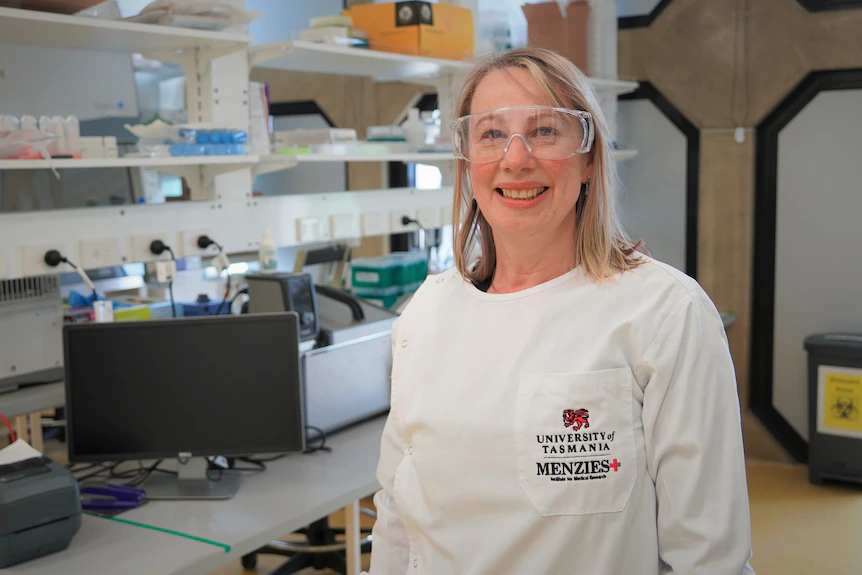
Associate Professor Anna Johnston, Director of Haematology, echoes the sentiment by emphasising the ongoing need for regular blood donations. "The reality is that the demand for blood never wanes. From surgeries to the management of chronic diseases, every unit of blood can mean the difference between life and death for patients," she notes.
This year's World Blood Donor Day campaign coincides with the cold and flu season, when fewer people donate due to illness, leading to a dip in available blood supplies. Yet, the need for blood remains constant. "Each donation can save up to three lives, and with blood only viable for 42 days, regular donations are essential to maintain a healthy stock," Anna explains.
Why blood donation matters:
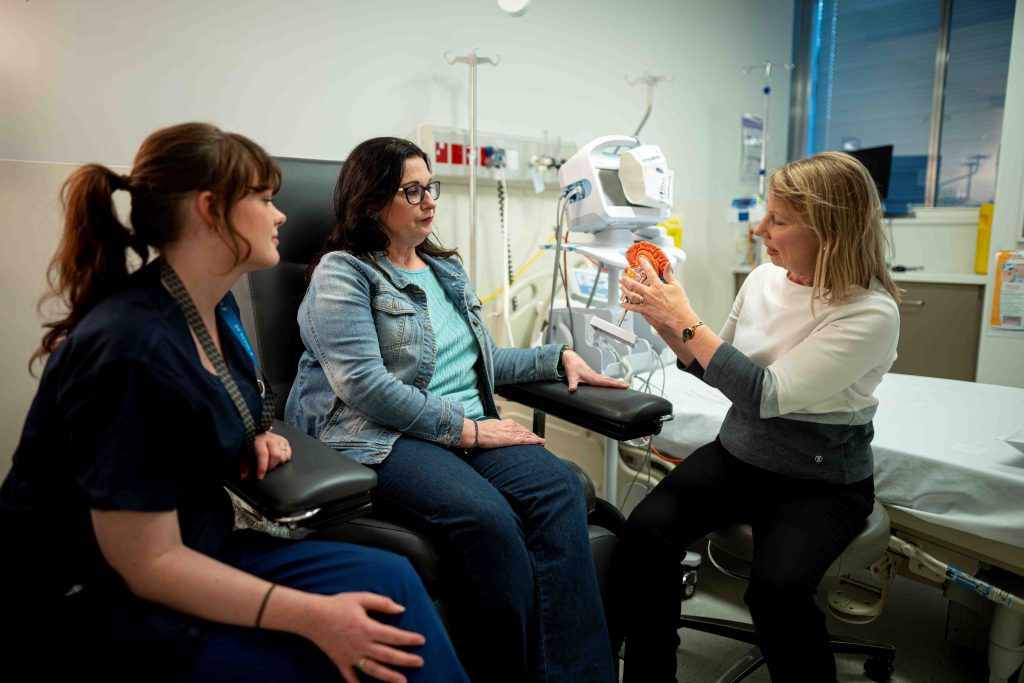
We invite you to become a part of this life-saving journey by donating blood today. The process is simple and safe, and staff are trained to ensure your comfort and well-being. For more information on how to donate, to understand your eligibility, and to learn about the safety measures in place, please visit the Australian Government's official blood donation website, contact Lifeblood, call 13 14 95, or download the DonateBlood app.
As we continue to lead in healthcare innovation and patient care, the Royal Hobart Hospital Research Foundation thanks every donor and volunteer for their invaluable contribution. Together, we are not just giving blood—we are giving others a better chance at life. Your participation has a direct and significant impact on the health and well-being of our community, and we are deeply grateful for your support.
In the heart of Tasmania, extraordinary tales of survival and scientific innovation remind us of the power of hope and the importance of advancing medical research.
Today I'm reaching out to share with you a story of incredible courage and a groundbreaking study that promises to transform stroke care and recovery for individuals like James Mackey.
James, a vibrant and active Tasmanian, suffered a severe haemorrhagic stroke at the age of 29. His sudden affliction and the harrowing journey that followed highlights a stark reality: a stroke can strike anyone, anytime, with life-altering consequences.
James was diagnosed with a severe haemorrhagic stroke—an unexpected bleed within his brain that left doctors scrambling to save his life. The prognosis was grim, and as James lay in an induced coma in the ICU for three weeks, his family faced the harrowing possibility of losing him forever.
Thanks to swift medical intervention and the relentless spirit of James and his loved ones, he embarked on a remarkable recovery journey, overcoming immense odds to regain aspects of his independence.
James's story is not just one of survival; it's a beacon of hope and a testament to the urgent need for innovative stroke research and care.
The sad reality is, Tasmania faces a unique challenge, sharing the highest incidence of stroke per capita in Australia. This unfortunate distinction means our community also leads in navigating the long road of stroke recovery.
The need for local, groundbreaking research has never been more critical.
It underscores our collective responsibility to support initiatives that promise better outcomes for our fellow Tasmanians confronted with this daunting journey.
The Royal Hobart Hospital Research Foundation is at the forefront of such innovation. We are excited to fund and support a pioneering study focusing on continuous blood pressure monitoring in severe acute stroke patients.
This research, led by Ms. Felicity Charlier and under the guidance of Professor Prue Morgan from Monash University, aims to uncover critical insights into how blood pressure fluctuations during early post stroke therapy, which includes mobilisation activities like rolling, sitting and standing, affect recovery outcomes.
With the potential to better understand stroke rehabilitation, the study leverages a novel Monash Engineering continuous blood pressure prototype device, with the future aim to guide clinical practices towards enhancing functional recovery in severe stroke patients.
Imagine the impact of this research on patients like James and countless others across Tasmania and beyond.
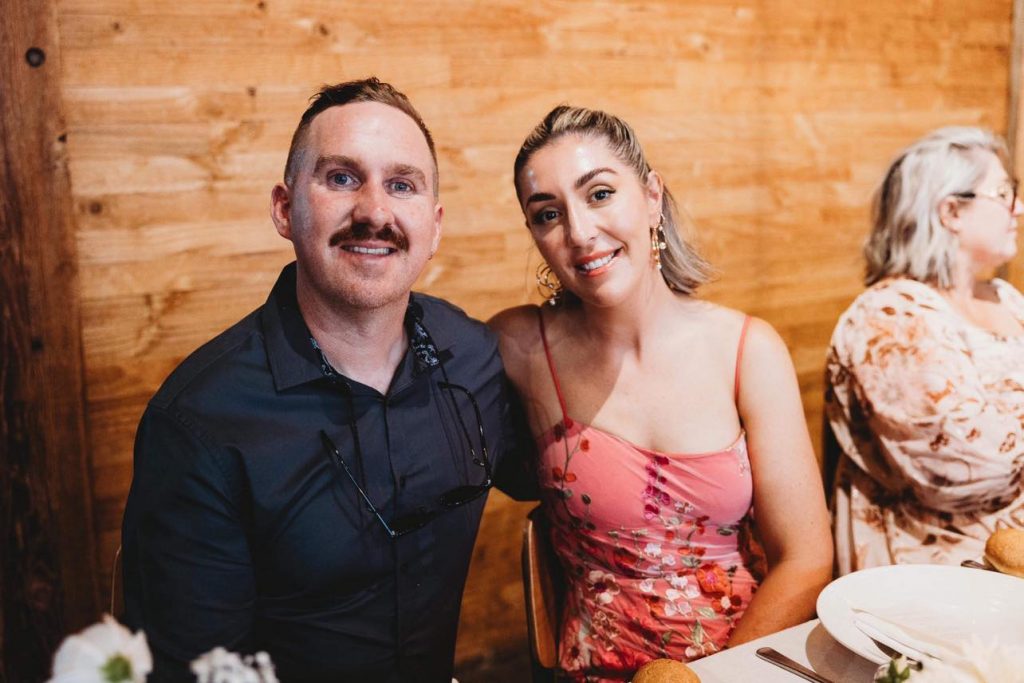
By identifying optimal mobilisation strategies, we can improve recovery trajectories, reduce the incidence of secondary complications, and elevate the quality of life for severe stroke survivors.
Your support can directly contribute to the success of this vital study and the development of new therapeutic approaches that will benefit individuals grappling with the aftermath of a stroke.
The journey ahead is filled with promise, but we need your help to make it a reality.
Your generous donation to the Royal Hobart Hospital Research Foundation this tax time will enable us to continue funding essential research like Ms Charlier's study, bringing hope and tangible improvements to stroke care and recovery.
Please consider donating to the Royal Hobart Hospital Research Foundation before June 30.
Together, we can harness the power of medical research to create a future where stories like James's are not only about survival but about thriving after a stroke.
Your support does more than fund research; it elevates the wellbeing of Tasmanians dealing with these health issues, enhancing the quality of life across our community.
Thank you for your continued support and generosity.
Warmest regards,
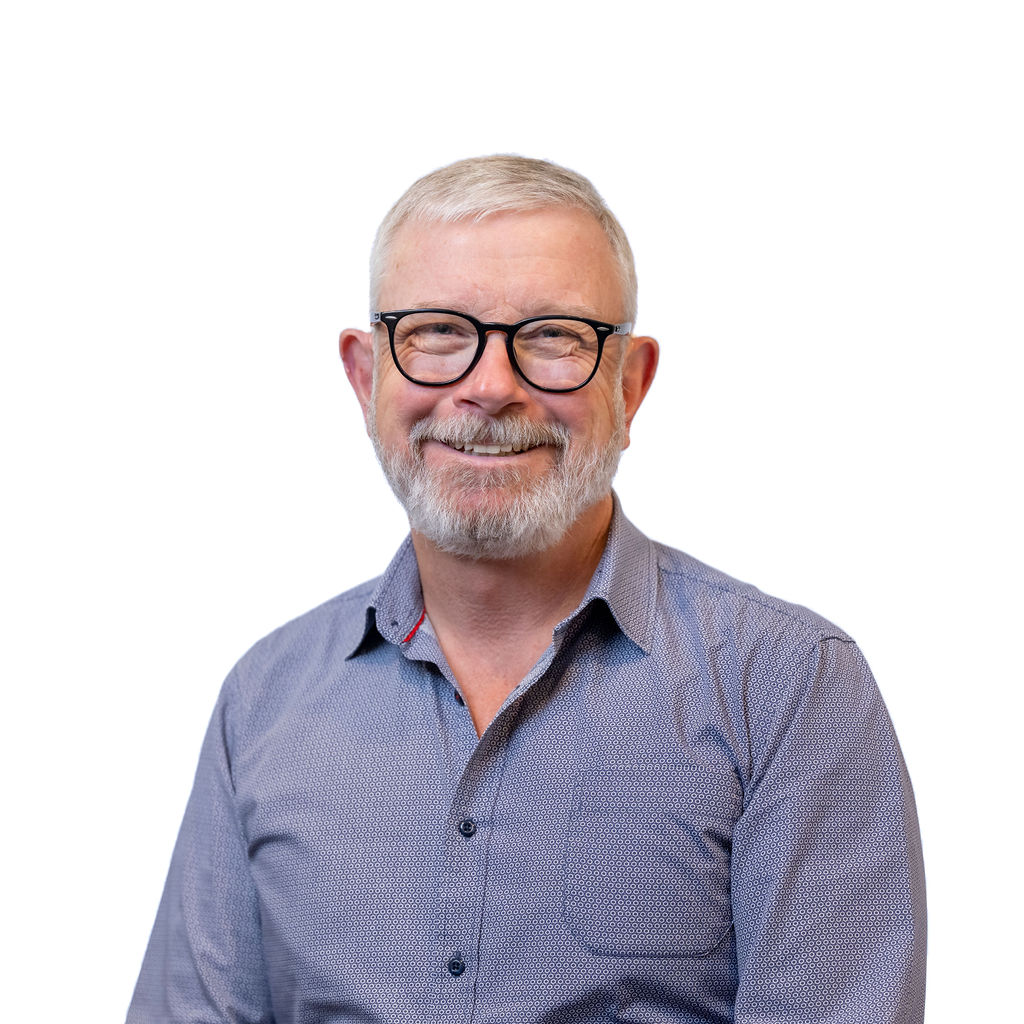
John Stubley
Interim Chief Executive Officer
Royal Hobart Hospital Research Foundation
P.S. The urgency to advance stroke research and care has never been greater. Can you join us in this critical mission with a tax-deductible donation today? Let's work together to save lives and transform the future of stroke recovery.
Thanks to the support of the Royal Hobart Hospital Research Foundation and its donors, groundbreaking research in preterm baby care is changing lives worldwide. The Foundation's early support of Professor Peter Dargaville's work has helped secure almost $2.5 million in funding from the National Health and Medical Research Council (NHMRC). This shows how vital initial support is in making research successful and impactful.
The study focuses on developing and improving the VDL1.1 oxygen control algorithm, now known as OxyGenie. This advanced technology aims to give preterm babies the right amount of oxygen, which is crucial for their survival and growth. The Foundation funded three key projects that made this innovation possible, allowing clinical trials to show how effective the algorithm is.
Preterm babies often need extra oxygen because their lungs are not fully developed. However, keeping their oxygen levels just right is tricky. Traditional manual adjustments can lead to periods where babies get too little or too much oxygen, which can be harmful. The VDL1.1 algorithm automates this process, making it much easier to keep oxygen levels stable, reduce extreme oxygen levels, and need fewer manual adjustments.
The results of a study comparing the VDL1.1 algorithm with manual control over 24 hours were impressive. Babies using the automated control had more stable oxygen levels, fewer dangerous oxygen deviations, and fewer manual adjustments. These findings, published in leading medical journals, show the algorithm's potential to change baby care.
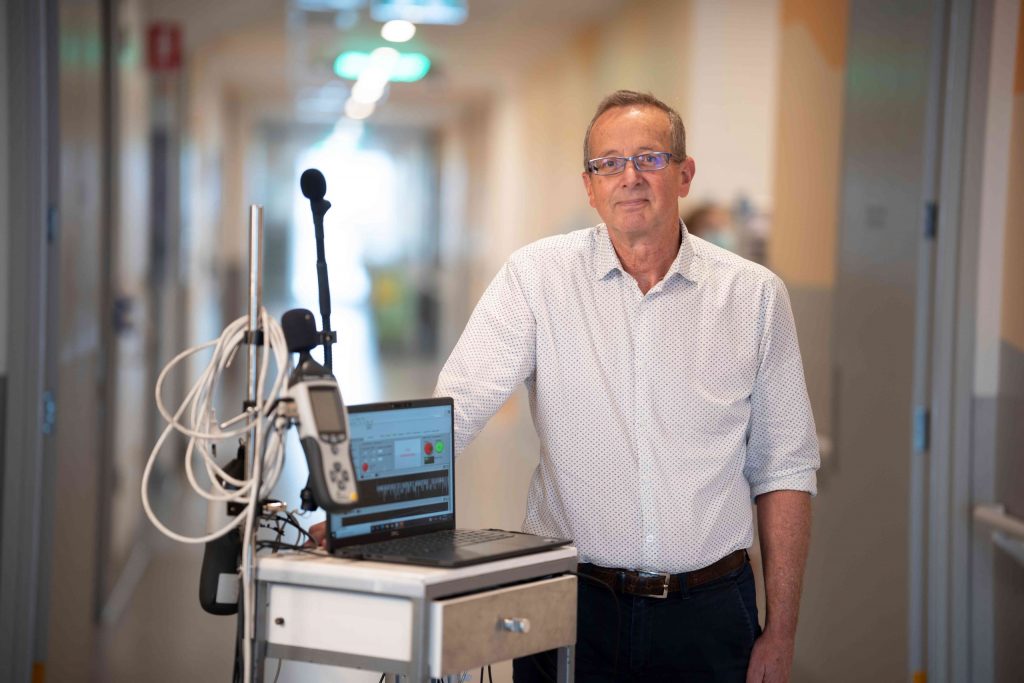
The success of Professor Dargaville's research highlights the Foundation's commitment to supporting critical medical advancements. Without the Foundation's initial funding, this project might not have reached its current global impact. Today, the OxyGenie algorithm is improving the care of preterm babies in neonatal intensive care units worldwide, showing how targeted support can lead to significant scientific breakthroughs.
This research is about improving outcomes for preterm babies today and setting a new standard for baby care in the future. As we continue to use technology to solve healthcare problems, Professor Dargaville and his team's work stands as a great example of how innovation, supported by donations, can lead to life-saving advancements.
The Foundation is proud to have been part of this journey, showing that our local efforts can indeed have a global impact. Our donors' generosity has enabled research that will benefit thousands of preterm babies, ensuring they receive the best possible start in life.
Join us in saving tiny lives! Your support can lead to innovative solutions and provide hope to preterm babies and their families. To contribute to our groundbreaking research, contact the Foundation's office at (03) 6166 1319 or donate online. Together, we can continue to advance neonatal care and give these tiny lives a fighting chance.
As Men's Health Week approaches, it's important to bring attention to the significant health issues affecting Australian men and highlight the vital research funded by the Royal Hobart Hospital Research Foundation to improve men's health outcomes here in Tasmania.
Understanding men's health in Australia
Understanding that Australian men face unique health challenges is crucial for developing effective interventions. Currently, 58% of Australian men rate their health as excellent or very good, yet nearly half live with one or more chronic conditions. Prostate cancer, heart disease, kidney disease, and mental health issues are among the most pressing concerns.
Prostate cancer: A major health issue
Prostate cancer remains a significant health issue, with an estimated 89,000 new cases reported in 2022 alone. These statistics highlight the importance of ongoing research and innovative treatments. The Precision Care for Men with Prostate Cancer project, led by Dr Kelsie Raspin, is a notable example of how genomic medicine can be integrated into healthcare to transform prostate cancer treatment. By focusing on patient-centred approaches and engaging the community, this project is paving the way for more personalised and effective prostate cancer care in Tasmania.
Innovations in cardiac care
Heart disease is a leading cause of death among Tasmanian men, with over 37,000 people affected. The Royal Hobart Hospital’s Rapid Access Chest Pain Clinic implemented a telehealth system during the COVID-19 pandemic. Research led by Dr Niamh Chapman, and supported by long time Foundation donor Mrs Patricia Pitman, found that telehealth consultations are as effective as in-person visits, reducing the need for additional tests and ensuring timely care. Under Dr Chapman's leadership, with the support of local cardiologist, Dr Andrew Black, this study also identified essential components for successfully delivering the clinic. It assessed the viability of expanding telehealth to increase patient accessibility, potentially influencing a national strategy.
Advancing kidney health
Kidney disease often goes unnoticed until it reaches advanced stages, and males account for 62% of kidney and urinary diseases. Professor Matthew Jose's research, supported by the Foundation's Lowenthal Muller Grant, is shedding light on the broader impact of kidney disease on Tasmanians. His work is crucial for developing new resources and strategies for patient care, ensuring better health outcomes for those affected by kidney disease.
Enhancing mental health
Mental health challenges affect 43% of Australian men at some point in their lives. Addressing these issues requires innovative approaches, such as the work led by Associate Professor Amanda Neil. Her study on the language-literacy skills of patients within mental health care settings is crucial for improving patient outcomes. By conducting a comprehensive audit of mental health service records and analysing the documentation of language-literacy skills, this research aims to enhance communication between patients and healthcare providers. Understanding a patient's literacy level can prevent miscommunication and ensure appropriate and effective care.
Supporting men's health through research
The Royal Hobart Hospital Research Foundation is dedicated to funding research addressing the unique health challenges men face. By supporting prostate cancer, cardiac health, kidney health, and mental health studies, we aim to improve health outcomes and quality of life for all men in Tasmania and beyond. Men's Health Week is an opportunity to reflect on Australian men's health issues and the importance of continued research and support. By understanding the statistics and backing vital research projects, we can make significant strides in improving the health and well-being of men in our community.
Join us in making a difference! Your support can lead to innovative solutions and provide hope to those affected by these health challenges. To contribute to our groundbreaking research, contact the Foundation's office at (03) 6166 1319 or donate online. Together, we can continue to advance men's health research and care.
The Royal Hobart Hospital Research Foundation is excited to announce the opening of its 2025 grants round, offering over $600,000 in funding for health and medical research. This significant investment aims to support innovative research that will improve the health outcomes of Tasmanians.
The grants available include:
"We are committed to advancing health and medical research in Tasmania," said John Stubley, Interim CEO. "Our grants program is designed to empower researchers at all stages of their careers and support projects that have the potential to make a significant impact on community health."
For guidelines and more information on how to apply, please visit our Research Grants page. Don't miss this opportunity to contribute to groundbreaking research and make a difference in the health and wellbeing of Tasmanians.
As part of our commitment to promoting better health and well-being, the Royal Hobart Hospital Research Foundation reached out to our resident sleep expert, Sam Bramich, for her invaluable insights on achieving a better night's sleep. Sleep is a crucial aspect of our overall health, and improving sleep quality can significantly enhance our daily lives. In honour of Better Sleep Month, Sam has graciously shared top tips to help you fall asleep faster and enjoy a more restful night.
10 Tips for Better Sleep
For more valuable sleep information, visit the Sleep Health Foundation.
Following these simple yet effective tips can improve your sleep quality and overall health. Your support is vital in helping us continue our research and provide expert advice like this. Please consider donating to the Royal Hobart Hospital Research Foundation. You can donate online or call us at (03) 6166 1319. Together, we can make a difference in our community's health and well-being.
The Royal Hobart Hospital Research Foundation's Research Matters speaker series returned on Wednesday, 15 May 2024 to spotlight kidney health during Kidney Health Week. Local specialists Dr Mathew Wallis, psychologist Carolyn Baker, and nurse practitioner Lisa Shelverton joined our expert panel to lead a dynamic seminar to a room full of Foundation supporters keen to find out more about the latest advancements in kidney disease.
In a focused session, the panel covered the latest kidney research, innovative prevention strategies, and advanced treatments emerging in Tasmania. Their discussion aimed to educate on supporting those with chronic kidney disease, emphasising new lifesaving advancements.
The speakers provided essential insights on recognising kidney disease symptoms, understanding its progression, and the latest therapeutic approaches to enhance patient outcomes. This informative seminar underscored the significant local contributions to kidney health, equipping attendees with the knowledge to make impactful changes.
We thank St Lukes for their continued support of the Research Matters series and for providing a perfect setting at their new Wellness Hub.
If you enjoyed this Research Matters seminar, don't miss out on our future events! Secure your spot for our upcoming Research Matters - Pain Week event on 24 July 2024.
Are you just discovering our Research Matters speaker series? Check out our other talks on dementia, prostate cancer, and heart health.
In an innovative move towards enhancing mental health services, Associate Professor Amanda Neil and team, supported by the Royal Hobart Hospital Research Foundation, are undertaking a crucial study on language-literacy skills of patients within mental health care settings. This year-long project, which commenced in April 2024, seeks to unravel to what extent, where and for whom language-literacy skills are being considered in Tasmanian mental health service provision.
These are key questions as low language-literacy skills are linked with poor mental health and may increase health inequalities. Health inequalities are differences in health status, and things that determine health status, such as access to care and differences in opportunities to lead healthy lives, such as through employment and housing. Low language-literacy skills can also directly influence patients' understanding of, and ability to engage with and benefit from, care.
For their project, the research team is conducting a comprehensive audit of mental health service records from 2022-23, analysing how often language-literacy skills are documented by staff for new patients. They will find out whether children, youths and adults are having their language-literacy needs assessed, whether these assessments are occurring in community care and/or inpatient care, and whether assessment practices vary across the state. The findings from this audit will shed light on current practices and identify potential areas for improvement to better support people with different language-literacy needs.
Preliminary insights from the team’s work suggests a widespread lack of awareness and underestimation of patients' literacy challenges. This situation can lead to miscommunication and inadequate and/or inappropriate care being provided. The project's findings will be crucial to informing strategies that help address these challenges and ensure that all patients receive care that acknowledges and accommodates their language-literacy level.
Thanks to the pioneering work of A/Prof Neil and her team, this project has the potential to help revolutionise mental health practices not only in Tasmania but potentially across Australia and the world. By establishing the need to integrate language-literacy considerations into mental health assessments, the project aims to enhance patient engagement and treatment effectiveness, making a significant contribution to the broader goals of Mental Health Awareness Week. With the invaluable support of the Royal Hobart Hospital Research Foundation, this study is a testament to the power of targeted research in driving tangible improvements in healthcare services. As this project progresses, it will stand as an example to people experiencing mental health challenges that their needs are important and that their treatment is as accessible and effective as possible.
You can improve Mental Health services in Tasmania by supporting crucial research. Donate online or call (03) 6166 1319 and help advance our transformative initiatives. Together, we can drive lasting change.
Thanks to our incredible donors', the Royal Hobart Hospital Research Foundation has supported a pivotal research initiative led by Dr Viet Tran addressing urgent needs in paediatric mental health care at the Royal Hobart Hospital's Emergency Department (ED). With a significant increase in emergency visits by children and adolescents experiencing mental health crises, this research shines a critical light on the acute challenges and potential improvements in handling such vulnerable patients.
The study, 'The Kids are Not Okay — Understanding Child and Adolescent Mental Health Presentations to the Emergency Department,' aims to dissect the reasons behind these emergency visits, evaluate the treatment provided, and assess the outcomes following discharge.
Since January 2020, Dr Tran and his team embarked on an extensive analysis involving detailed epidemiology of mental health issues in children visiting the ED, including suicidal ideation, acute behavioural disturbances, and other critical conditions. The study engaged multiple families and healthcare professionals, providing a robust dataset that underscores the need for targeted intervention strategies.
The study's findings were revealing. They highlighted that young people are seeking emergency help for their mental health much more often now with a concerning average ED stay exceeding national targets. This insight points to an urgent need for enhanced resources and strategies to manage these cases more effectively within the hospital and the community through a dedicated framework, which includes a multidisciplinary team of psychiatrists, psychologists, and social workers.
In line with Mental Health Awareness Week, this project aims to improve immediate care for these patients and establish a long-term strategy that could prevent such emergencies. By providing a deeper understanding of the patterns and outcomes associated with paediatric mental health crises, the research sets a foundation for developing more effective treatment protocols and community-based support systems.
Thanks to our donor's support, the Royal Hobart Hospital is leading the way in integrating research-driven approaches into paediatric mental health care. The study's chief investigator, Dr. Viet Tran, is pioneering efforts to bring about systemic changes that promise to enhance care delivery and patient outcomes. This initiative exemplifies how targeted research and strategic funding can address critical healthcare challenges, paving the way for a better future for Tasmania's children.
Join us in celebrating Mental Health Awareness Week by backing essential research with the power to change lives. Discover more about our initiatives and help advance groundbreaking work by donating through our website or by contacting our office at (03) 6166 1319. Together, we can create a significant and enduring impact.
Thanks to the diligent work of Dr. Nenagh Kemp and the support from the Royal Hobart Hospital Research Foundation’s donors, the Psychological Outcomes of Preterm Children in Tasmania (POPIT) project is exploring important cognitive challenges in preterm children. The project investigates executive functions such as the ability to plan and consider various factors in decision-making, which are crucial for the best start in life.
Housed within the Royal Hobart Hospital, the POPIT project has developed a unique research database that gathers a comprehensive range of cognitive and behavioural data. This initiative is vital as being born preterm can influence a child's cognitive development, potentially affecting their everyday functioning at home and in school settings. The project aims to refine assessment tools that predict real-world functioning in these children, setting long-term goals for enhancing early developmental strategies.
Since its inception in September 2020, the project has engaged 42 families, contributing valuable data toward understanding executive functions in preterm children. The assessments, involving psychologist-led tasks and feedback from parents and educators, offer a comprehensive view of the children's capabilities. The preliminary findings from the research are promising and indicate that certain factors may positively impact cognitive development.
Aligned with Mental Health Awareness Week commencing 13 May 2024, the POPIT project underscores the importance of early developmental interventions. By focusing on enhancing the cognitive capabilities of young children, the research aims to provide them with the tools they need for successful early years, paving the way for healthier future outcomes.
Building on the initial foundation set by Dr Kemp's research and the past support of the Royal Hobart Hospital Research Foundation, the POPIT project continues to emphasise the significance of understanding early cognitive development. The project remains committed to providing crucial insights into how we can better support the cognitive development of Tasmania's children, ensuring they have the best start in life.
Your continued support is vital for research like Dr Kemp's to continue transforming lives. Learn more and contribute to groundbreaking initiatives by making a donation online or calling our office on (03) 6166 1319. Together, we can make a lasting impact.
In recognition of Stop Snoring Week, commencing 20 April 2024, we delved into the snores that keep many awake at night, seeking insights from our sleep expert, Sam Bramich. As a dedicated Sleep Technician and a researcher supported by the Foundation, Sam brings a wealth of knowledge on why people snore and how to address it.
Sam explains that snoring isn't just a nightly inconvenience; it's a signal from our body that something might be amiss, such as the potential for obstructive sleep apnoea. Understanding the root causes—from relaxed throat muscles to lifestyle factors—is vital to finding solutions. With Sam's expertise, we're equipped with actionable tips to combat snoring, from medical interventions to simple lifestyle adjustments such as maintaining a healthy weight, avoiding alcohol before sleep, and practising side sleeping.
As Stop Snoring Week unfolds, let's take steps towards better sleep by exploring Sam's research-backed advice. Whether you snore or spend the night next to someone who does, join us in finding out how to embrace a quieter, healthier night's rest.
Why do some people snore?
Snoring occurs when some parts of the throat vibrate during sleep. It is usually a part of the throat called the pharynx, which is held open by several small muscles. During sleep, these muscles relax, and the pharynx becomes narrower and more prone to vibrations when people breathe in and out while asleep. Some people who snore may also have a condition known as obstructive sleep apnoea, where they experience repeated episodes of partial or complete obstruction of the throat during sleep. During these obstructions, breathing is reduced or stops for a few seconds to a few minutes, causing blood oxygen levels to fall. This then causes the brain and body to awaken to start breathing again briefly, but sleep is often disrupted as a result. Obstructive apnoea’s can happen many times overnight, and the associated lack of blood oxygen and frequent nighttime awakenings are related to many adverse health conditions, including high blood pressure, stroke, and dementia. Ask your partner if they hear you stop breathing and partly wake with a gasp after a delay. It may be a sign that you have sleep apnoea, and you should then talk to your doctor about it to figure out how to address it.

What are the risk factors for snoring?

How do I stop snoring?
Snoring not only impacts your health by causing disrupted sleep but can also affect those who live with you. The first step to stop snoring is to ask your general practitioner for a referral to have a sleep study. A sleep study is a non-invasive test that monitors your sleep patterns, breathing, heart rate, and movements. It can be done in the comfort of your own home and will investigate how severe your snoring is and whether you have obstructive sleep apnoea. There are several medical treatments available, including continuous positive airway pressure (CPAP) therapy, mandibular advancement splints (or mouth guards), nasal decongestants, positional therapy (to encourage side sleeping), and weight loss. There are some great online resources available for those looking for more information.
You can find out more about Sam's sleep research or donate to support more groundbreaking studies in this space by going to the Foundation's website or calling our office on (03) 6166 1319.
Andrew Marshall is a Foundation-funded postdoctoral academic at the University of Tasmania, pioneering neonatal care research to improve preterm infants' outcomes.
What made you want to get into medical research?
My passion for medical research was ignited during my Bachelor of Engineering's final year, where I designed an automated oxygen delivery system for preterm infants. This blend of engineering and healthcare captivated me, and I was inspired to pursue a PhD on this topic, leading to its clinical evaluation at the Royal Hobart Hospital and worldwide commercialisation. I now continue this research as a postdoctoral academic at the University of Tasmania.
What is the most rewarding thing about being a medical researcher in Tasmania?
In Tasmania, the close-knit nature of our community fosters unique collaborations, notably between the School of Engineering, Menzies Institute for Medical Research, and Royal Hobart Hospital Neonatal and Paediatric Intensive Care Unit (NPICU). Being embraced by the NPICU family and seeing our research benefit vulnerable infants offers immense satisfaction, underscoring the impact of our work on real-world patient outcomes.
How has the funding of the Royal Hobart Hospital Research Foundation helped you achieve your research goals?
The Foundation's grants have been crucial, supporting the development of innovative sensors and therapeutic interventions. This funding has enabled our team to conduct clinical studies and gather unique information, enhancing our efforts to monitor and treat upper airway obstructions in preterm infants. These advancements aim to significantly improve patient outcomes and broaden our research into preterm babies with breathing difficulties known as apnoea.
What research project do you have planned next?
Our upcoming research encompasses two main themes: refining our automated oxygen control system for broader application; and advancing the prediction, detection, and treatment of apnoea with new sensors, systems, and intervention methods. These initiatives are designed to elevate neonatal care across various settings, demonstrating our dedication to improving newborn health.
Your generosity fuels the groundbreaking work of medical researchers like Andrew, making a real difference in the lives of Tasmanians. Help us keep supporting the future of medical research in our community. Donate today online or call us at (03) 6166 1319.
Thanks to the unwavering support of our local community, the Royal Hobart Hospital Research Foundation is thrilled to be funding a range of new medical research projects in 2024. These ground-breaking studies are designed to improve the health and wellbeing of Tasmanians, focusing on conditions that impact many of us.
These research projects, which began earlier this year, are led by dedicated researchers committed to enhancing patient care and expanding our knowledge of diseases prevalent within our community. This year’s research projects include investigations into innovative blood pressure monitoring techniques for stroke recovery patients, assessments of shockwave therapy on chronic plantar heel pain and the development of new tools for detecting breathing conditions in premature babies.
A highlight among these projects is the "More than a Dream" study, generously supported by Huon. This pioneering research aims to find ways of detecting Parkinson's disease decades earlier, potentially transforming the lives of many individuals and their families.
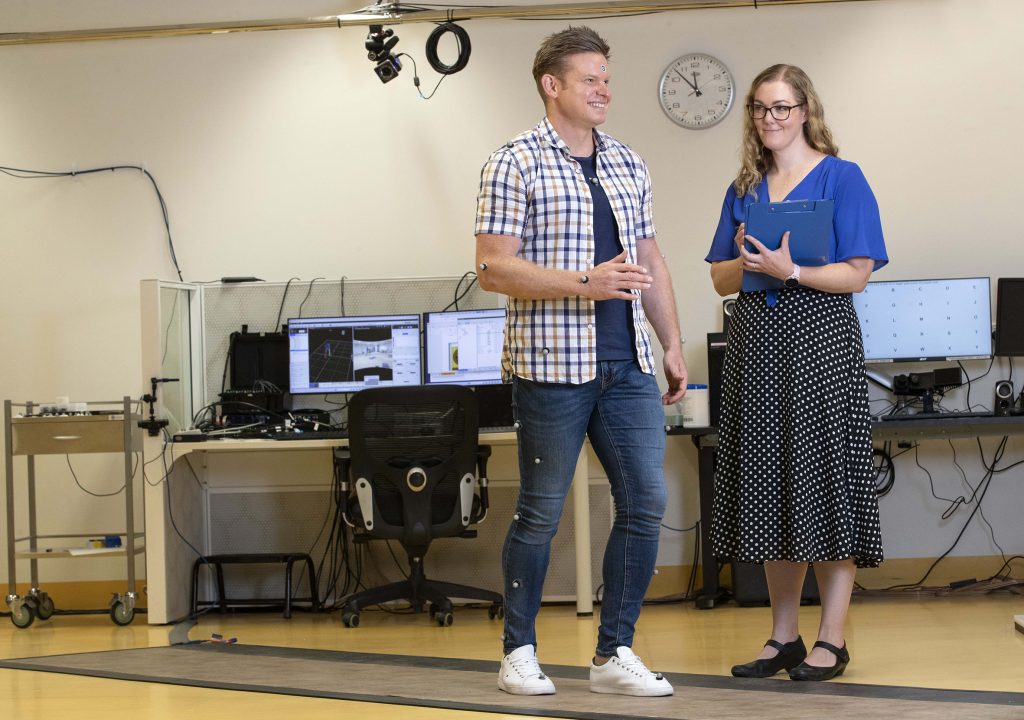
Interim CEO, John Stubley, shared his enthusiasm for these projects noting that "The Foundation is incredibly proud to support such a diverse array of research projects. These efforts will not only broaden our understanding of critical health issues but also have a profound impact on the lives of thousands of people in our community."
The success of these projects is a testament to the generosity of our community of donors and corporate partners. "We are truly grateful for the continuous support from our community, who band together to drive significant change and innovation in medical research," John added.
We eagerly anticipate sharing the progress and outcomes of these transformative projects with you. Their potential to improve health outcomes and the quality of life for Tasmanians is immense.
If you are inspired by the groundbreaking work being achieved and wish to contribute to the advancement of medical research in Tasmania, please consider making a donation online or contact our office on (03) 6166 1319. Your support can help us continue to fund life-changing research projects well into the future.
I am delighted to be introducing myself to you all – I’m John Stubley and I will be joining the Foundation as Interim CEO, while Steph Furler is on maternity leave.
Over the past few years, I’ve held leadership roles at Hobart City Mission and Optia Disability Services. These were rich and rewarding roles thanks to the incredible support of people within our community who helped us transform lives.
My experience has shown me that Tasmanians are some of the most compassionate and caring people, who are always happy to chip in to help others. As I join the Foundation, I can already see that our community of supporters are just as giving and are really committed to improving the health of others.
I look forward to meeting many of you at our upcoming events, which are listed on the back page, and to hear your inspiring stories. Together, I know that we will continue championing groundbreaking research projects that make real differences in people's lives.
Please don’t hesitate to reach out anytime if you would like to chat. I can be reached on 03 6166 1319 or at jo**********@*********ov.au.
Warm regards
John Stubley
Paving the Way: Groundbreaking Alzheimer's Research at the Royal Hobart Hospital Research Foundation
Thanks to our community's generous spirit and unwavering support, the Foundation has funded ground-breaking new research that aims to detect Alzheimer's disease decades before symptoms usually show. The overwhelming response to our Christmas appeal, and the contributions received during our recent sold-out International Women's Day event, have allowed us to fund this pioneering research led by distinguished speech pathologist Associate Professor Lyn Goldberg.
Over the next year, the research team will examine how Alzheimer's disease may be detected earlier by looking at a person’s tongue strength. Participants will undergo assessments to measure their tongue strength and their ability to rapidly repeat a series of syllables. These findings will then be compared against a control group who have no cognitive concerns. Through this careful examination of individuals worried about their memory and thinking capabilities, the team aspires to create a non-invasive, affordable, and easily accessible test, that could identify Alzheimer's risk well before traditional symptoms emerge.
Thanks to everyone who donated to this project. Together you are helping to make strides in Alzheimer's research, offering promise and potential to families affected by this heartbreaking condition.
Please consider donating today to ensure we can continue funding vital research projects like this one. Donate online or call our office at (03) 6166 1319 to contribute. Together, we can shape a healthier future.
In the spirit of Brain Tumour Awareness Month this March, we're shedding light on a groundbreaking project that brings new hope to those affected by brain cancers in Tasmania. Thanks to the generosity of our community and the leadership of Professors Rosemary Harrup and Jo Dickinson, the Central Nervous System (CNS) Tumour Biobank for Tasmanians is making strides toward a brighter future in brain tumour research.
This project is all about gathering important samples from primary brain cancers to help scientists and doctors understand more about how these tumours grow and how to fight them. It's like creating a huge library of brain tumour information that researchers can use to make new discoveries.
Leading this incredible effort is Professor Rosemary Harrup. She's a full-time clinician and the Director of Cancer and Blood Services at the Royal Hobart Hospital. Professor Jo Dickinson is based at the UTAS Menzies Research Institute and is a full time researcher. Their work on this project shows a deep commitment to making things better for people with cancer. This work is all about finding new ways to diagnose and treat brain tumours, and teaching the next generation of scientists and doctors to do the same.

Why is this biobank so important? Brain cancers are a tough problem. They are rare (only 2% of all adult cancers) so it is harder to get samples and funds for research. We don’t have a screening tool (like a mammogram or a PSA test) so they're hard to detect early and even harder to treat effectively. This project is special because it focuses on the details of each tumour's genetic makeup. Understanding these details could lead to big changes in how we approach brain cancer, offering hope for discovering new features of brain cancer that allow better understanding of the causes and more tailored treatment.
The CNS Tumour Biobank doesn't just help Tasmanians. By joining forces with a nationwide brain cancer research group, Tasmania is playing a big role in the global effort to fight brain cancer. This means our local scientists get to collaborate with some of the best in the world, and together, they can make even bigger discoveries.
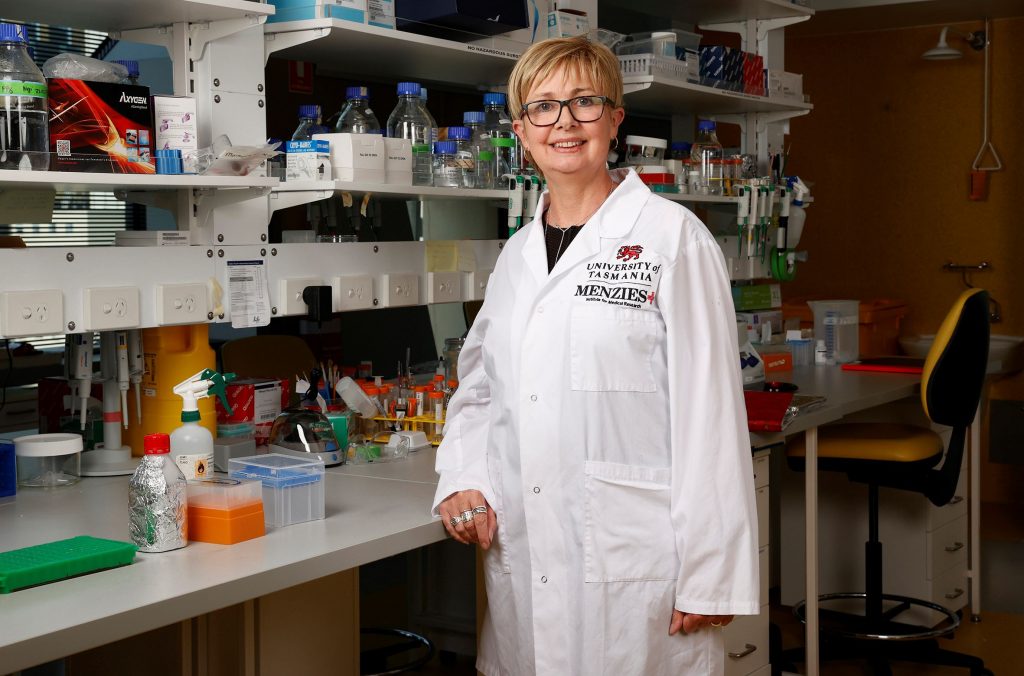
As we think about Brain Tumour Awareness Month, the CNS Tumour Biobank stands as a symbol of hope. It's a reminder of what we can achieve when we come together for a common cause. We're not just looking for new treatments; we're looking for better outcomes for everyone touched by this disease.
We are especially thankful to have professionals as skilled and dedicated as Professor Harrup and Professor Dickinson leading this charge. Their passion and vision are guiding us toward a future where brain tumours no longer bring fear but are something we can understand and conquer.
This biobank is more than just a collection of samples. It's a collection of hope. It represents our shared commitment to fighting brain tumours and our belief in a future where this condition can be beaten. Let's keep pushing forward, inspired by the progress we're making and the people, like the CNS Biobank team, who are leading the way.
Join us in making a difference
Your support can propel groundbreaking research using the CNS Tumour Biobank to new heights. Every contribution, big or small, helps us get one step closer to turning hope into reality for those facing brain tumours in Tasmania and beyond. To support this vital work, consider donating online or call the Foundation office on (03) 6166 1319. Together, we can unlock new discoveries and improve the lives of patients and their families. Your generosity makes all the difference.
In celebration of World Kidney Day 14 March 2024, we had the opportunity to chat with Professor Matthew Jose about his transformative study into motherhood and kidney disease. Serving as a renal physician at the Royal Hobart Hospital and Chair of Medicine at the University of Tasmania, Professor Jose has dedicated his career to advancing kidney health. His work shines a light on the experiences of prospective mothers facing kidney disease, aiming to provide clarity and support. Celebrated for his contributions, Professor Jose's insights are especially poignant on a day dedicated to raising awareness of kidney health worldwide.
This year's World Kidney Day is all about "Kidney Health for all." How are you and your team getting involved in this important cause?
A: For World Kidney Day, our focus is on promoting "Kidney health for all" across Tasmania. We're tackling the challenge head-on by breaking down barriers to optimal kidney care. With new treatments in our arsenal, we're now better equipped than ever to prevent or delay kidney disease.
Kidney disease seems like a silent issue. How prevalent is it among Tasmanians?
A: It's more common than many realise – one in eight Tasmanians have low kidney function, and this figure jumps to one in three for those aged 65 and over. With over 4,000 individuals facing severe kidney disease and 600 relying on dialysis or a transplant, it's a significant health concern here.
Your groundbreaking study on motherhood and kidney disease fills a crucial gap in information for prospective mothers. What kind of impact do you hope to have for Tasmanians?
A: Our study shines a light on vital information for women with early or mild kidney disease. It's all about empowering them to make informed decisions regarding pregnancy, understanding the impact of their condition on both themselves and their babies. This clarity was missing before, and we're here to change that.
Can you give us a walkthrough of your study's process, especially how you're assessing the impact on patients and their outcomes?
A: Fifty years ago, women with kidney disease were often advised against pregnancy. Despite improvements in care, there's still a void in specific guidance. Our study identifies women with abnormal kidney markers before pregnancy, enabling us to explore the effects on both the mothers and their babies.
How have the outcomes looked for these mothers and their babies so far?
A: The response from the kidney community and the Society of Obstetric Medicine has been incredibly positive. We're in the process of seeking peer review for our findings, aiming to share our insights more broadly soon. We're also working closely with Assoc. Prof Shilpa Jesudason and Pregnancy and Kidney Research Australia, a patient-support portal, to disseminate this crucial information.
With the promising direction of your current research, do you see further studies in this area on the horizon?
A: Absolutely. Our goal is to continue conducting robust research that can lead to better outcomes for mothers with kidney disease and their children. There's so much more to learn and achieve in this space.
You are also the recipient of the Foundation’s Lowenthal Muller grant. Can you share any recent developments, particularly regarding health outcomes and the treatment burden for Tasmanians with kidney failure?
A: Our research, supported by the Lowenthal Muller Grant, has recently shed new light on the health outcomes and personal burden of various treatment options for Tasmanians dealing with kidney failure. A key aspect of our approach has been to actively involve kidney patients in our research. By assembling kidney consumers to review this crucial information, we're not just analysing data; we're engaging with those it impacts most to ensure our findings are genuinely informative. This collaborative process is guiding us in developing new resources aimed at supporting patients in making informed decisions about their care.
We've already conducted focus groups in Hobart and are extending these valuable discussions to Launceston and Burnie. This outreach is pivotal in capturing a broad spectrum of patient experiences and perspectives. We’re also consulting with healthcare professionals to gauge how this information aligns with clinical insights and how it can be integrated into patient care more effectively.
Our efforts were recently recognised by Professor Brian Dolan from Oxford University, a distinguished figure in patient-centred research, who described our work as “world-class” during his visit to Tasmania. This endorsement underlines the significance and impact of our research in advancing kidney health care, marking a promising step forward in our mission to enhance the lives of those affected by kidney disease.
Join us in making a difference!
Support groundbreaking research like Professor Matthew Jose's by contributing to the cause. Your donation can pave the way for innovative solutions and provide hope to those affected by kidney disease. Get in touch with the Foundation's office at (03) 6166 1319 or make a donation online. Together, we can continue to make strides in kidney research and care.
As we observe Rare Diseases Day on 29 February 2024, we aim to shed light on the critical work being supported by our Foundation's donors to address the challenges faced by individuals with rare diseases in Tasmania.
Thanks to generous community support, local geneticist, Dr. Mathew Wallis, spearheaded an important study that sheds light on the prevalence and consequential impact of rare diseases within the state by analysing over a million hospital admissions records and emergency department presentations. By employing specific codes to identify individuals with rare diseases, his findings have indicated a prevalence of approximately 3.2% in the Tasmanian population based on hospital admissions. In 2017 alone, those with rare diseases represented 1.5% of the population but astonishingly accounted for 10% of hospital activity, underscoring the disproportionate healthcare demands this group places on Tasmania's healthcare system.
A disease is considered rare in Australia if it affects fewer than 5 in 10,000 individuals. Despite their rarity, these conditions—including childhood cancers, cystic fibrosis, and Huntington's disease—pose significant challenges due to their life-threatening or chronically debilitating nature. Based on Australian Health Department data, Australia is home to over 2 million individuals living with a rare disease, constituting about 8% of the population. The complexity and genetic origins of these diseases often result in delayed diagnoses and a scarcity of treatment options, contributing to the burden on patients and healthcare systems alike.
The significance of this study extends beyond its immediate findings; it highlights the urgent need for a comprehensive understanding of rare diseases and their impact on healthcare systems. The journey of individuals living with rare diseases is fraught with obstacles, from achieving an accurate diagnosis to accessing effective treatments and care. With fewer than 5% of rare diseases having an effective treatment, the quest for improved quality of life and extended life expectancy for these patients is paramount.
This research contributes valuable insights into the specific context of Tasmania and underscores the global challenge of addressing rare diseases. It serves as a call to action for healthcare professionals, researchers, and policymakers to collaborate in enhancing the identification, treatment, and management of rare diseases, improving outcomes for this vulnerable segment of the population.
You can help support life changing medical research like this pioneering study by Dr Matthew Wallis that helps improve the lives of Tasmanian’s by donating to the Foundation online, or by calling our friendly team on (03) 6166 1319. Together, we can help create a brighter future for those affected by rare diseases.
Thanks to the visionary support of a Foundation donor, Mrs Patricia Pitman, a groundbreaking initiative is unfolding in cardiac care at the Royal Hobart Hospital. With over 37,000 Tasmanians grappling with heart disease, Patricia's generosity has ignited hope for those living with multiple types of heart conditions.
There’s a dedicated clinic within the Royal Hobart Hospital, known as the Rapid Access Chest Pain Clinic (RACPC), which helps Tasmanians with heart conditions. Doctors in this clinic can quickly check patients with heart problems, offering swift assessment and diagnosis and helping patients avoid unnecessary emergency room visits.
It was a proven success, however the team in the RACPC wanted to develop a system where they could help people who weren’t able to visit the clinic in person and ensure they receive the same high-quality care. Through a new research trial, they used video calls (telehealth) to engage these patients, manage heart disease risks and improve care for people that often find it difficult to access care.
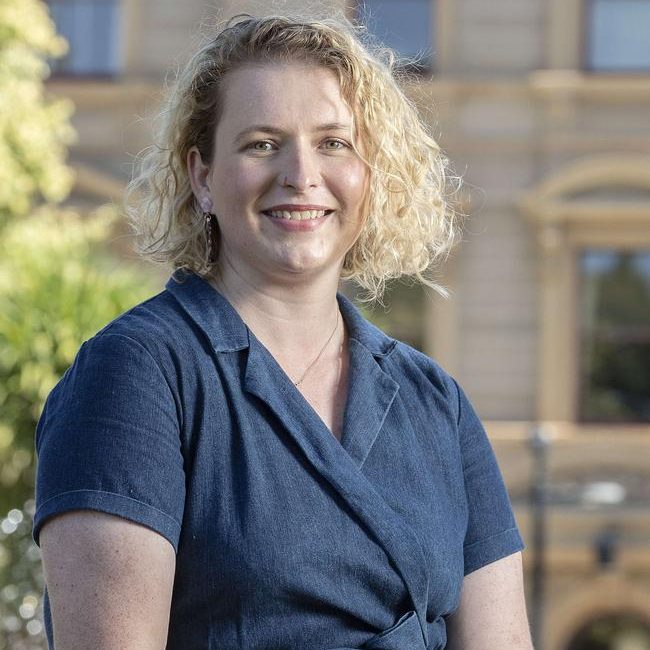
Through this research project, the team looked at how the clinics were run and talked to the doctors and nurses to see what could be improved. They also looked at how patients faired after using the telehealth service compared to those who visited the clinic in person, focusing on how often they ended up back in the emergency room, if they had serious heart problems later and how happy they were with their care.
The findings from this study were exciting. They showed that the telehealth version of the RACPC works just as well as seeing patients face-to-face, even reducing the need for extra tests to keep people safe during the COVID-19 pandemic. This means that people living in remote and rural areas, can still get expert help for chest pain without travelling, which could be a game-changer not just during a pandemic but also in day-to-day life.
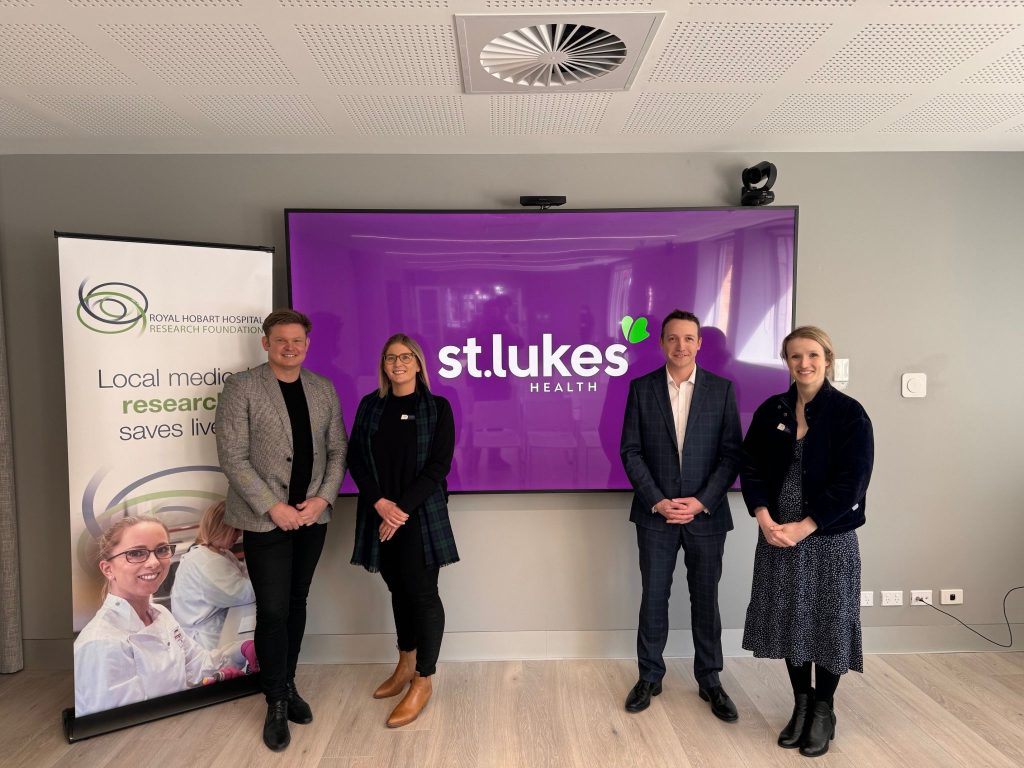
Thanks to Patricia Pitman's generosity, the Royal Hobart Hospital is leading the way in using technology to improve heart health care. The study's chief investigator, Dr Niamh Chapman, and leading local cardiologist, Dr Andrew Black, who are part of this project, are now helping create new national guidelines for treating heart problems. Their work shows how new ideas and technology can make a big difference in health care.
This project isn't just about improving things for people with heart problems today. It's about setting up a system that can help even more people in the future, no matter where they live. This initiative exemplifies how technological advancements can be harnessed to meet healthcare challenges and improve the quality of life for countless individuals.
As we commemorate World Cancer Day on 4 February 2024, we want to highlight how the generous support of our Foundation donors are tackling Tasmania’s high prostate cancer rates.
Thanks to community support, the Foundation is funding a study focused on precision care for men with prostate cancer, a disease that affects over 25000 men in Australia each year. The study, led by Dr Kelsie Raspin, will examine how prostate cancer care can be transformed through a consumer-engaged approach, ensuring that patient insights and preferences spearhead this medical revolution.
The dedicated research team are doing this by recruiting Tasmanian men diagnosed with high-grade prostate cancer, establishing a core outcome set for genomic prostate cancer medicine and creating an invaluable database of rare prostate cancer variants identified in high-grade prostate cancer patients.
Since launching in 2023, the research team have already made substantial headway on the genetic analysis of prostate cancer. Initial participants in the study have had their DNA examined through whole-genomic sequencing, and the researchers are now investigating rare variants considered clinically actionable. This information will be given to the participants, which may provide them with vital information about why they have prostate cancer and may then inform their future treatment decisions.
Ove the next two years, the team will recruit more participants and undertake further whole-genome sequencing to unveil further insights into prostate cancer genetics. They will also establish a Variant Curation Database, which is set to be a linchpin in future prostate cancer research and treatment.
Precision Care for Men with Prostate Cancer is more than a study — it's a testament to genomic innovation, community engagement, and hope, steering us towards a future where cancer treatment is as personalised as the DNA it seeks to unravel. We thank all our donors for their support and allowing us to help improve the health outcomes of men with prostate cancer.
In a landmark decision Australia has recently announced a ban on engineered stone, effective from July 2024, in response to the growing health crisis of workers developing silicosis. This momentous step highlights the critical role of scientific research in shaping public policy and safeguarding worker health.
Supporters of the Royal Hobart Hospital Research Foundation proudly contributed to this pivotal change, by providing funding for a ground-breaking study on the dangers of artificial stone benchtops. The study was led by Professor Zosky and revealed alarming facts about the engineered stone industry in Tasmania. Over 20 per cent of workers exposed to dust from cutting artificial stone benchtops showed signs of accelerated silicosis, a severe lung disease. The project aimed to identify the most hazardous materials in engineered stone and the cellular mechanisms contributing to the disease's severity. This approach was crucial in understanding the unique dangers posed by engineered stone dusts, different from typical silica dusts.
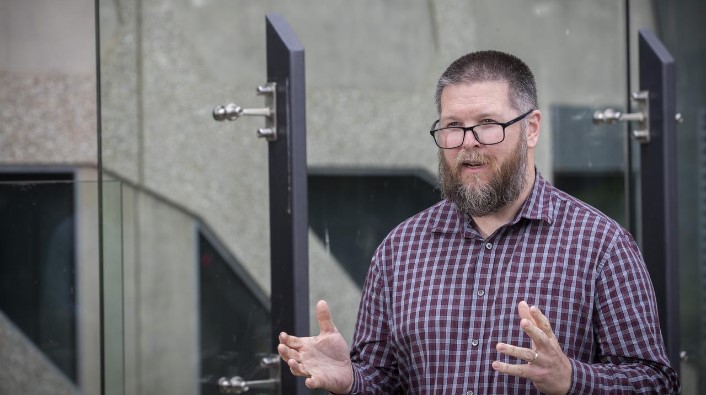
Recently, Professor Zosky has been in the news again with his latest findings, adding another dimension to this complex issue. In collaboration with the University of Adelaide, his new research found that metals like cobalt and aluminium in engineered stone also pose significant health risks. These discoveries have reinvigorated calls for a comprehensive ban on engineered stone, considering not only the silica content but also the presence of other harmful components.
The unanimous decision by Commonwealth, state, and territory workplace ministers to implement a national ban on engineered stone is a testament to the power of dedicated research in driving policy changes. Thanks to the generosity of our supporters, Professor Zosky's work significantly influenced public awareness and played a key role in a decision that will save countless lives.
As Australia prepares for this ban, it’s clear that the path to safer workplaces is paved with diligent research and informed policy decisions. The Royal Hobart Hospital Research Foundation remains dedicated to supporting such vital research, ensuring that the health and safety of workers remains at the forefront of industry practices.
As we celebrate the spirit of giving and togetherness this festive season, we want to ask if you will give the ultimate gift of helping others by making a life-saving gift to support Alzheimer’s disease research.
We’d like to introduce you to Rowan, a 72-year-old proud Tasmanian, who regrettably watched his eldest brother Colin succumb to Alzheimer’s disease some years ago. Colin was the heart of every family gathering and activity. He was the best friend to all his siblings and Rowan’s children adored ‘pop’.
The family’s world came crashing down when they noticed Colin started to forget basic details and subsequently had a significant shift in his personality, becoming increasingly sombre in his ways.
“I remember the day when Colin let us all know that things had changed in his life after a diagnosis of late-stage Alzheimer’s disease and that’s when it all made sense,” said Rowan.
“It was crushing to watch him get worse and became harder for us to provide him with the constant support, particularly after he had fallen into a deep sleep in his final stages of life.”
On Colin’s last day, Rowan recalls that he and his older brother Brendon sat at the end of his hospital bed chatting. Colin hadn’t spoken in weeks, but in that emotional moment Rowan’s wife, a Nurse Practitioner, cheerfully entered the room during her rounds. She addressed Colin and asked about the light-hearted banter shared by Rowan and Brendon during their time at his bedside.
Colin suddenly murmured “Yes, they’re ratbags chatting over me while I lay here in my bed, but I enjoy hearing their voices”.
“They were his last spoken words before he passed away later that evening. It was a very sad, but perfect final day,” describes Rowan.
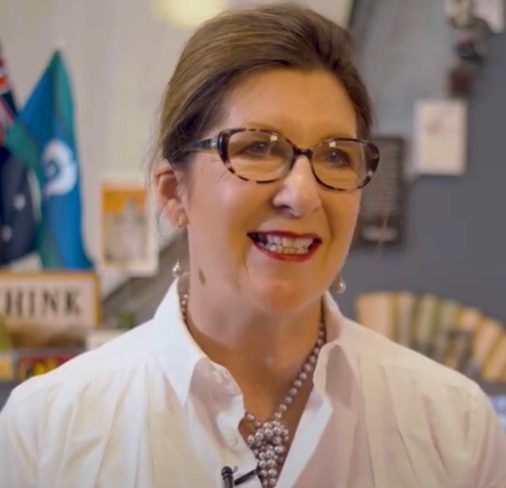
Associate Professor Lyn Goldberg believes tongue strength could be an early biomarker for the early detection of dementia.
The Royal Hobart Hospital Research Foundation now needs your help to get ahead of Alzheimer’s disease and help families like Rowan and Colin’s.
We are on the verge of making some incredible breakthroughs to detect Alzheimer’s disease decades before symptoms emerge and help people like Colin receive early intervention - but we need your help to make this possible.
Royal Hobart Hospital Research Foundation researcher and speech pathologist Dr Lyn Goldberg believes that a person’s tongue strength may be an important, but yet unrecognised contributing factor to early detection!
With your support, Dr Goldberg and a dedicated team of Tasmanian researchers will conduct an innovative study to investigate how a loss of tongue strength may help predict this awful disease. These results will inform the development of an easily accessible and low-cost test to identify a person’s risk of developing Alzheimer’s disease.
Dr Goldberg and her team will study people who are concerned about their thinking and memory, but who do not have a diagnosis of dementia, to measure their tongue strength and ability to repeat a series of syllables as fast as they can. Their results will be compared to results from a group of people who have no concerns about thinking and memory. People in both groups will also have highly specialised blood tests which can predict Alzheimer’s disease.
Dr Goldberg explains “We believe these results will help us identify a further non-invasive, affordable and easily accessible way to predict potential cognitive decline.”
Rowan and his siblings are already keen to register for Dr Goldberg’s upcoming study. “This seems like the perfect way to help provide essential health data to help others, while also taking early steps to ensure I’m safeguarding my brain health for as long as I can,” Rowan explains.
Please, this Christmas, will you consider giving a gift to the Royal Hobart Hospital Research Foundation to help Dr Goldberg and her team explore how tongue strength can revolutionise the way we diagnose and ultimately treat Alzheimer’s disease?
Your generous tax-deductible donation will not only help local Tasmanians but will make a profound impact the health and wellbeing of people worldwide.
Thank you for supporting medical research. With your help, we can create a brighter and healthier future for our community this Christmas.
P.S. The number of people living with Alzheimer’s disease set to triple by 2050. Will you make a tax-deductible donation this Christmas to help fund ground-breaking new research to revolutionise how doctors test and treat this terrible disease?
Are you ready for an incredible challenge? The Royal Hobart Hospital Research Foundation has an exhilarating opportunity for you! The Foundation is thrilled to announce that it is the charity partner for the 2024 Cadbury Marathon and we’re inviting you to join in the fun.
The Cadbury Marathon is held on 7 January 2024 in Hobart and offers a range of running events to suit everyone’s fitness levels, from 1km to full marathons, so anyone can take part.
Here’s how to get started:
Sign up: Click here to register for the 2024 Cadbury Marathon
Fundraise: Create a fundraising page and share it with your networks to support your efforts
Train and prepare: Start your training journey and get ready to make a difference
Impact: Every step you take gets us closer to our goal of improving the health and wellbeing of Tasmanians
So, get ready to lace up those runners and set yourself a new challenge for 2024.
If you would like tips on how to fundraise while you run, please reach out to the Foundation team on re******@*******************on.org.
We look forward to seeing you on race day!
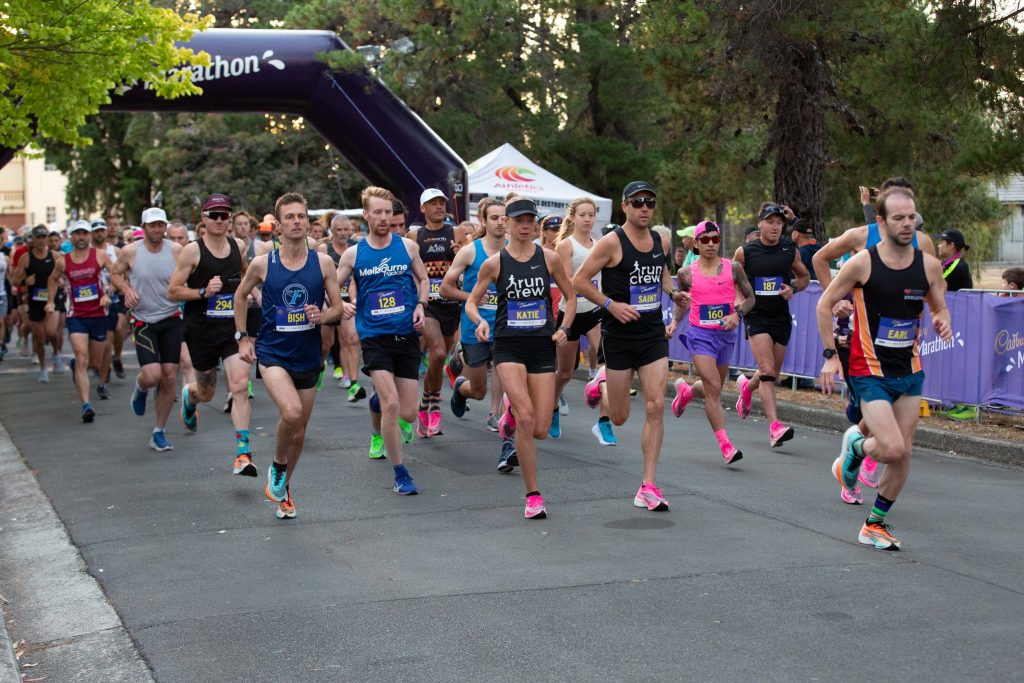
On 15 November 2023 we proudly celebrated the remarkable contributions of its community of supporters and dedicated researchers at our Spring Soiree. It was an evening of appreciation at AURA Hobart, complete with refreshing drinks, delicious canapés, and breathtaking views!
Throughout the night we celebrated our amazing partners, while also showcasing the achievements of our Foundation-funded researchers. Over the past year, our researchers have been at the forefront of medical advancements - focusing on enhancing treatments for men with prostate cancer, pioneering new tests for dementia, exploring the link between air pollution and specific diseases, and so much more. Their incredible work promises significant improvements in the health and wellbeing of our community.
Guests also heard from Foundation-funded sleep scientist, Sam Bramich, who captivated guests with her insights on REM sleep behaviour disorder and how this condition can be an early indicator of dementia and Parkinson’s disease.
We are so grateful for the generous support of the Spring Soiree event sponsor St Lukes. This inspiring organisation is committed to making Tasmania the healthiest island globally and acknowledges the crucial role of local medical research in achieving this ambitious goal.
It was a pleasure to have so many supporters from various parts of our dynamic community in one room to celebrate the advancements in research in 2023. We look forward to working together to ensure that our research continues to positively impact our local community in 2024 and beyond.
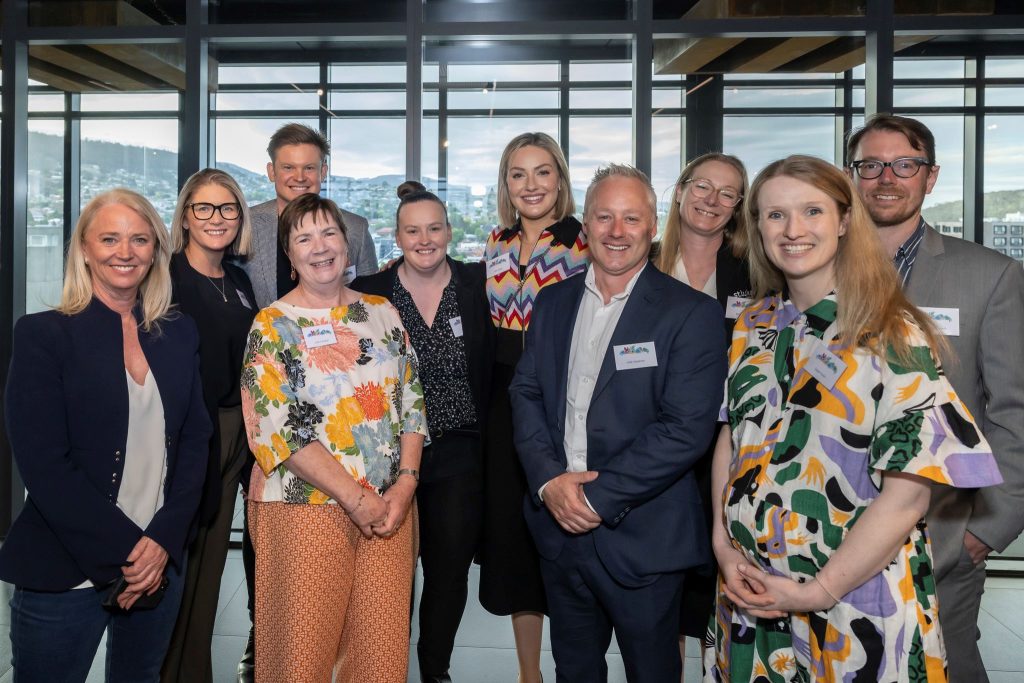
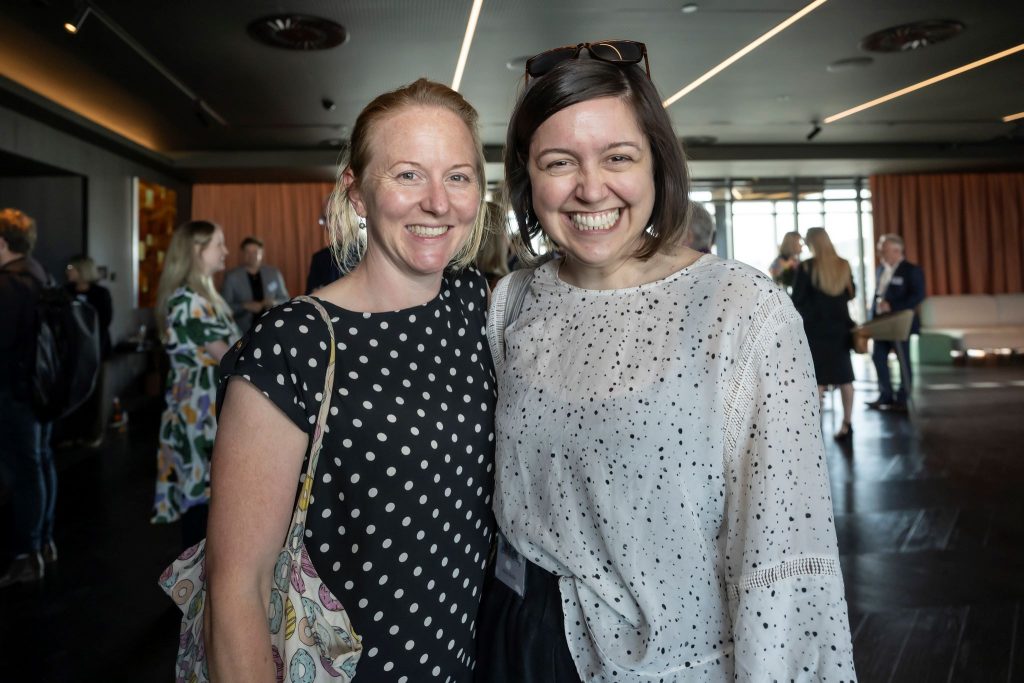
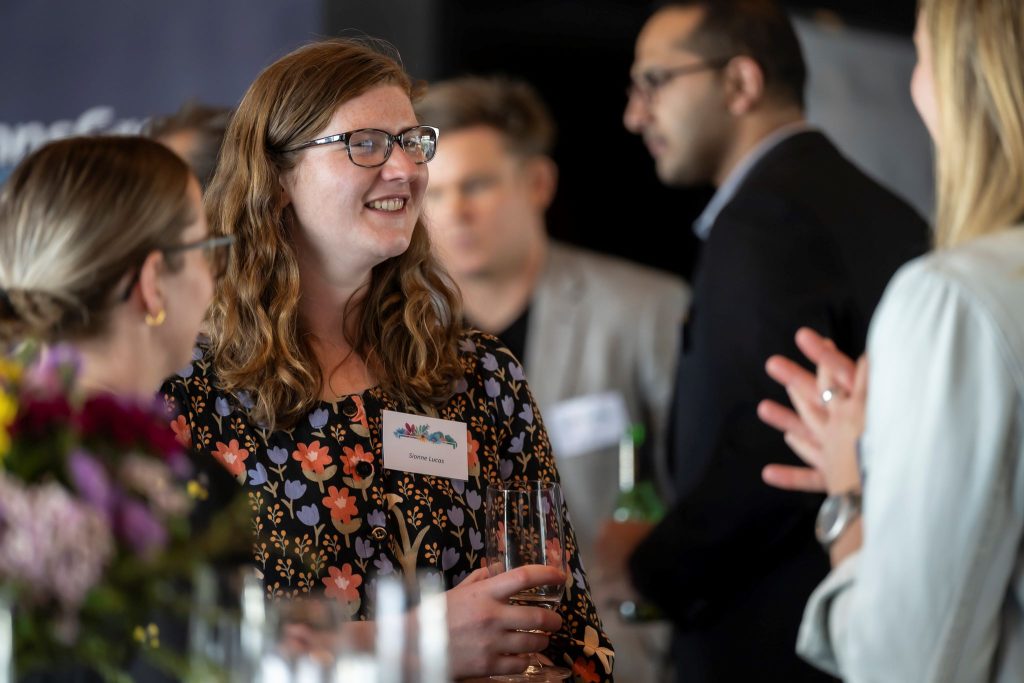
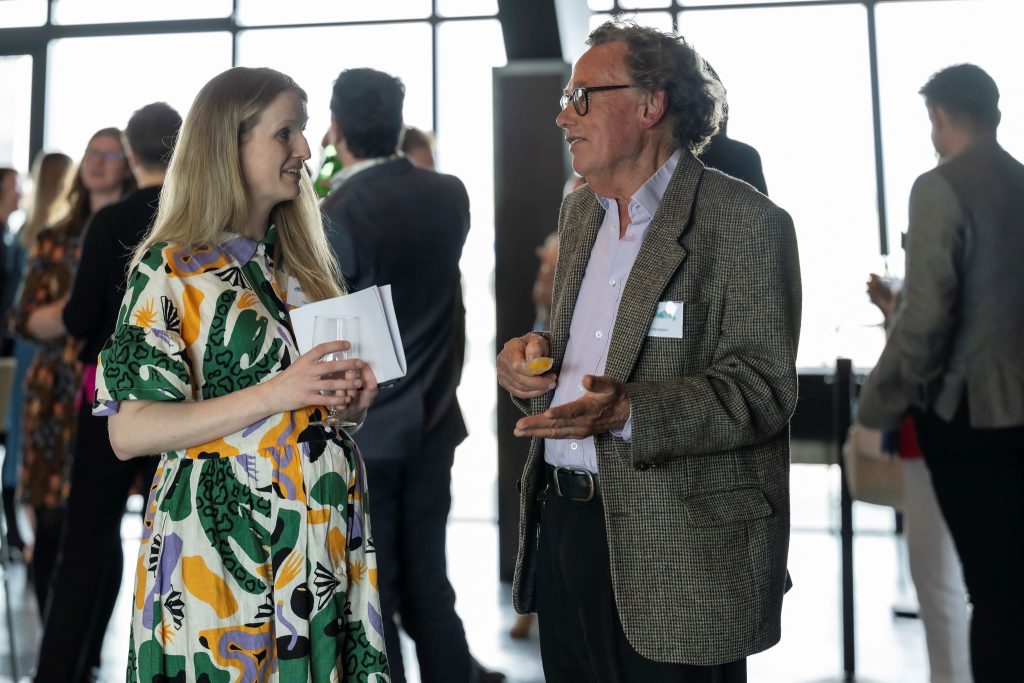
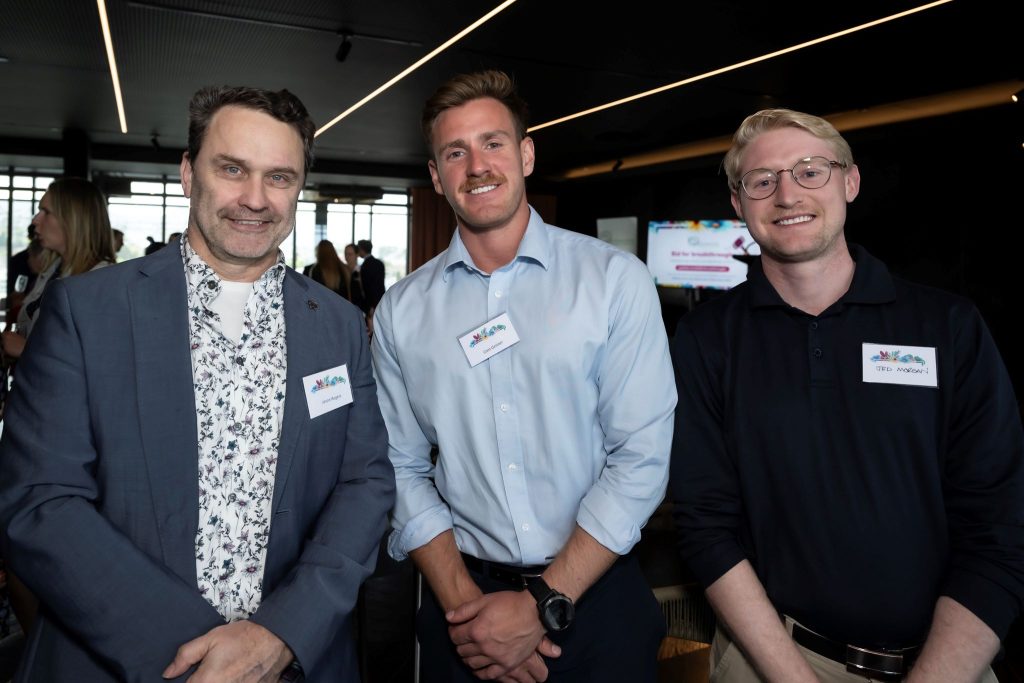
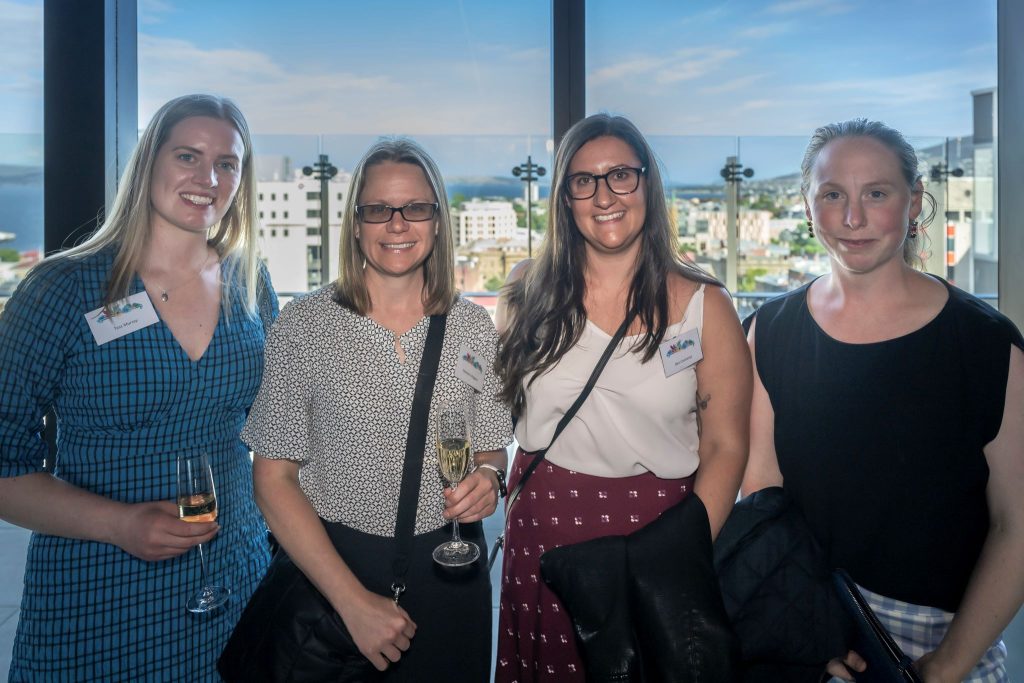
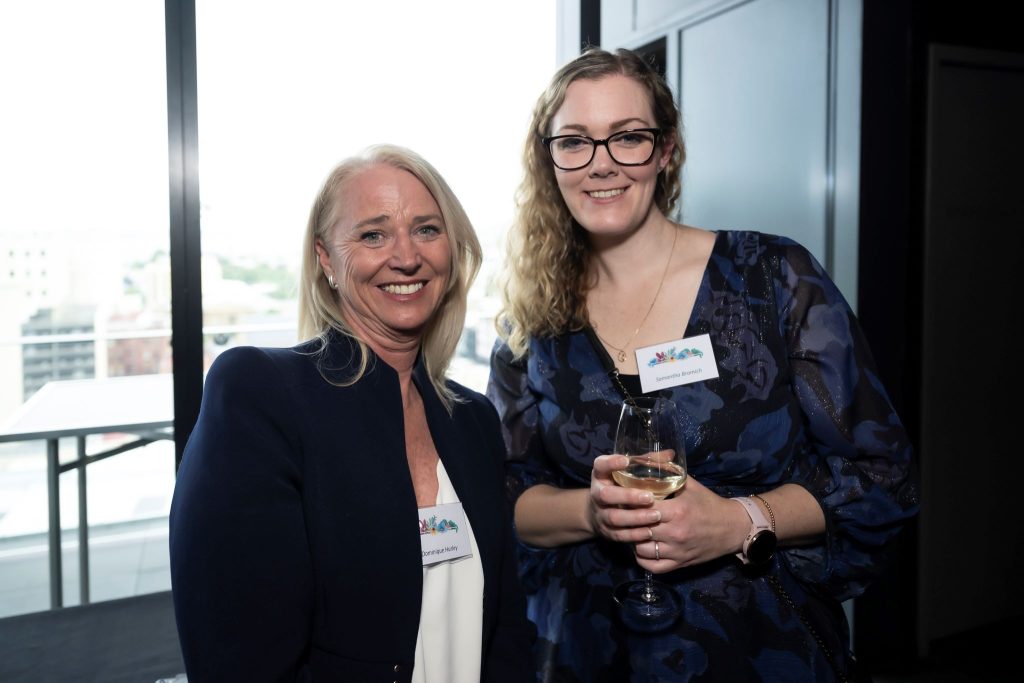
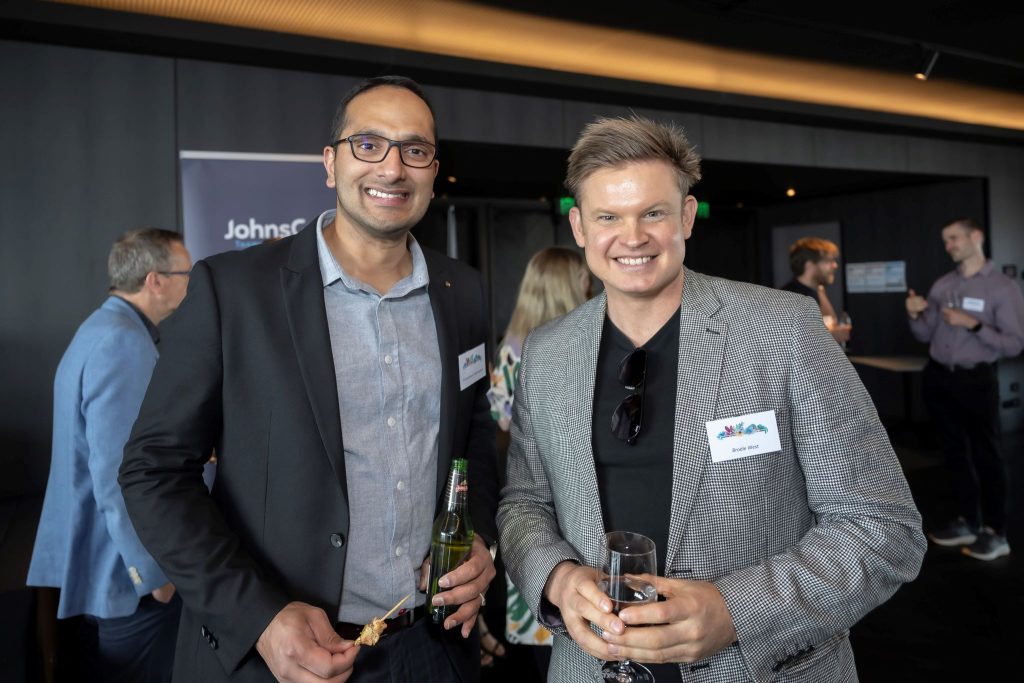
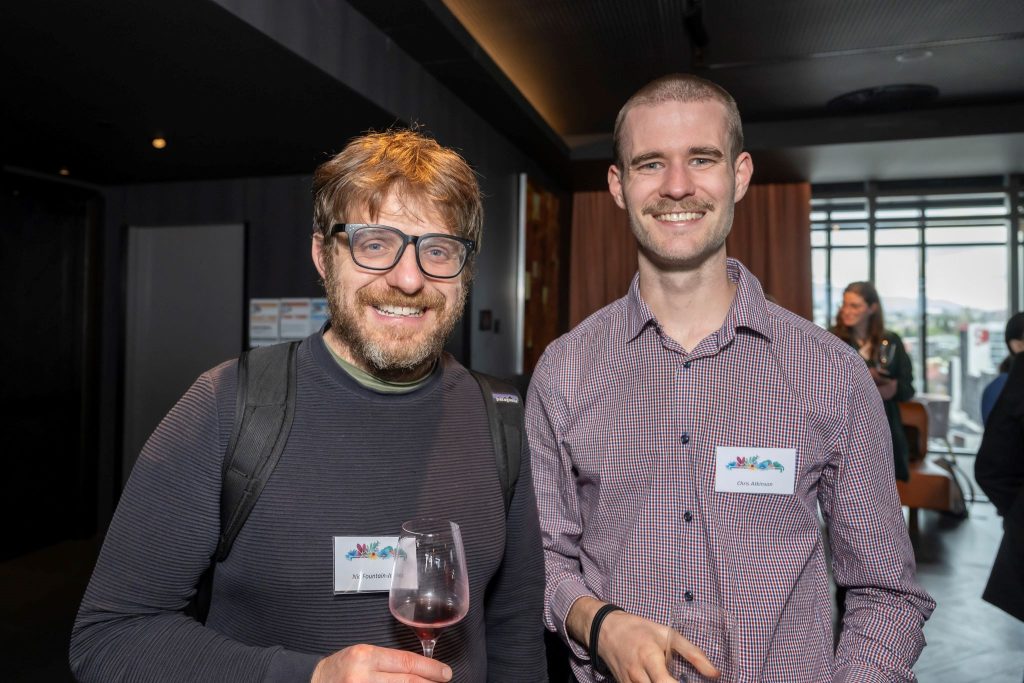
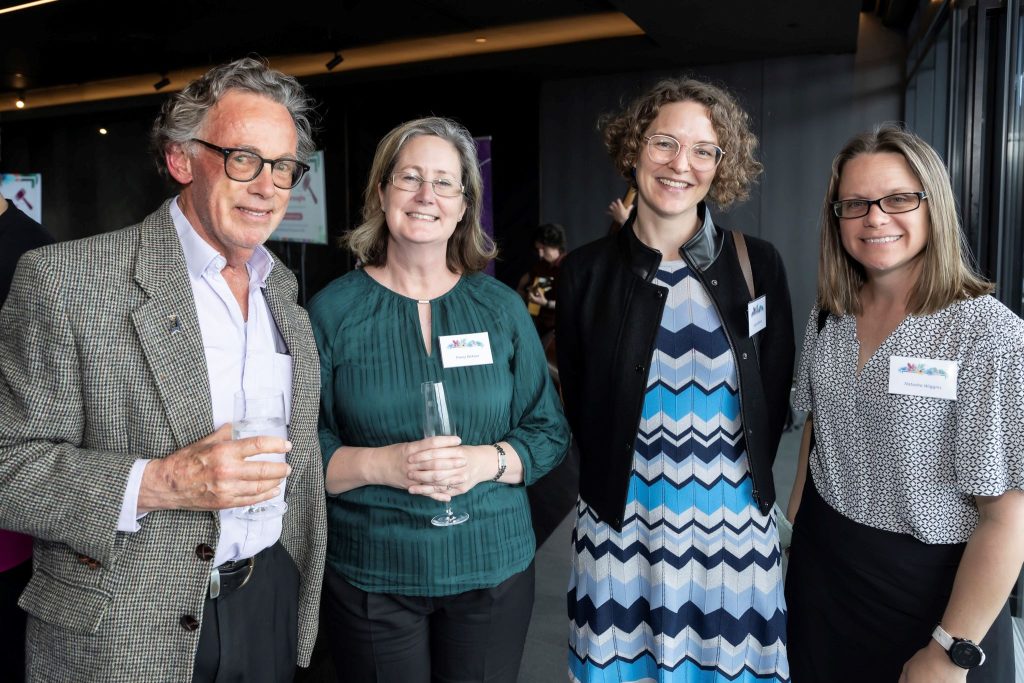
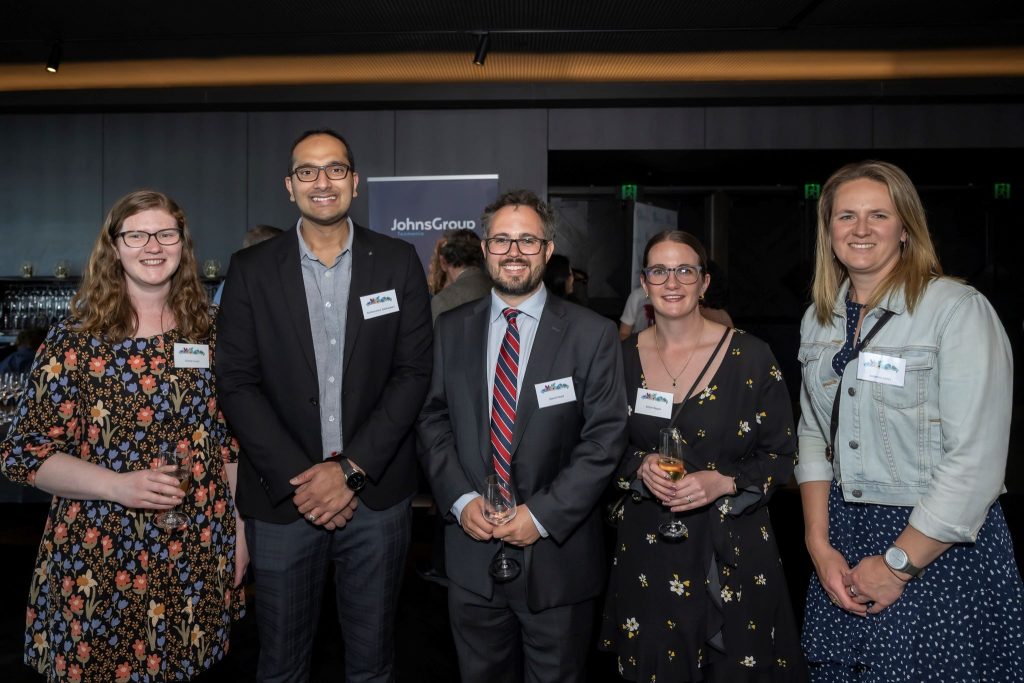
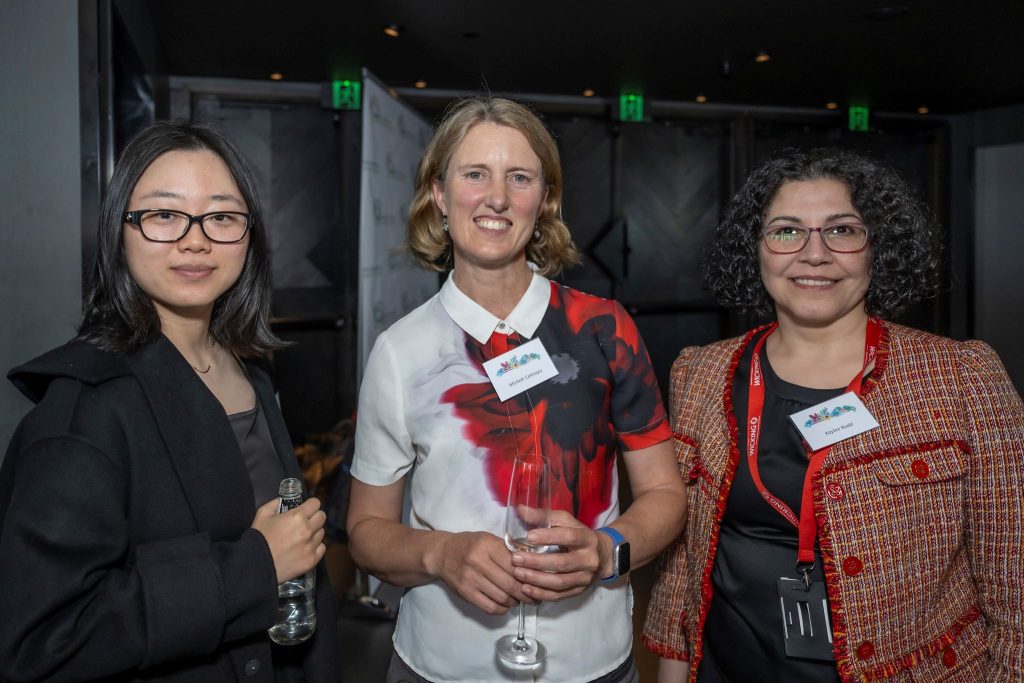
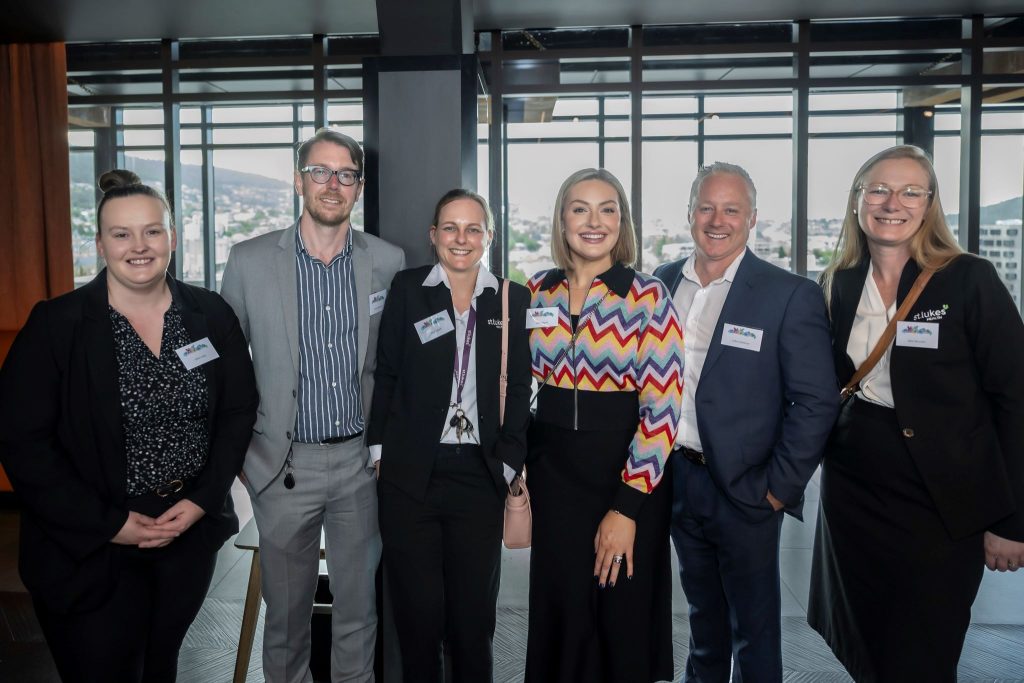
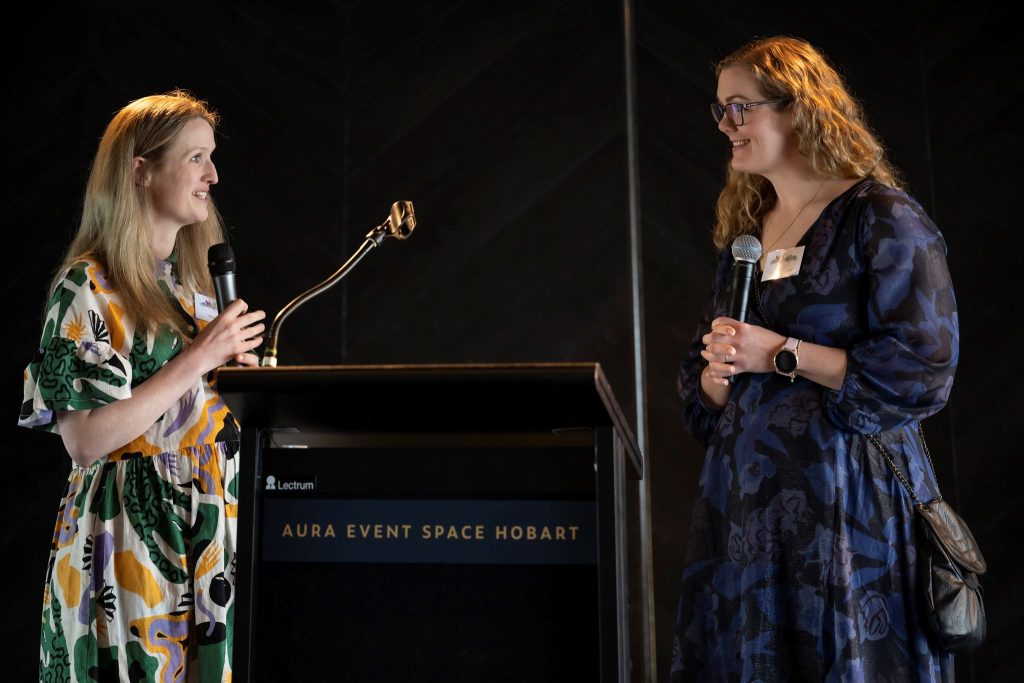
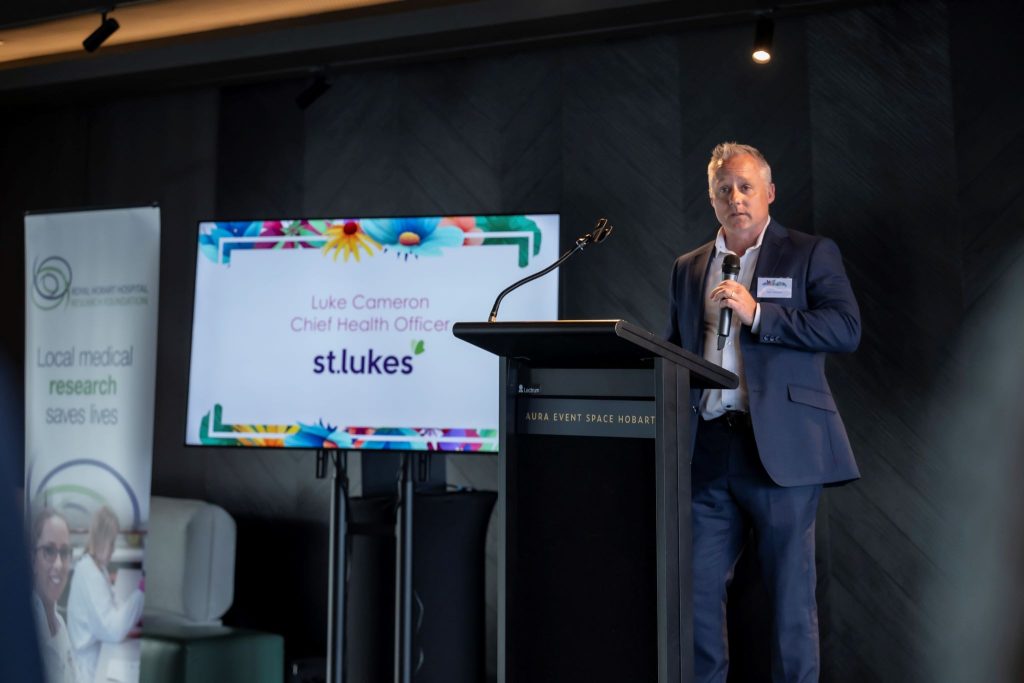
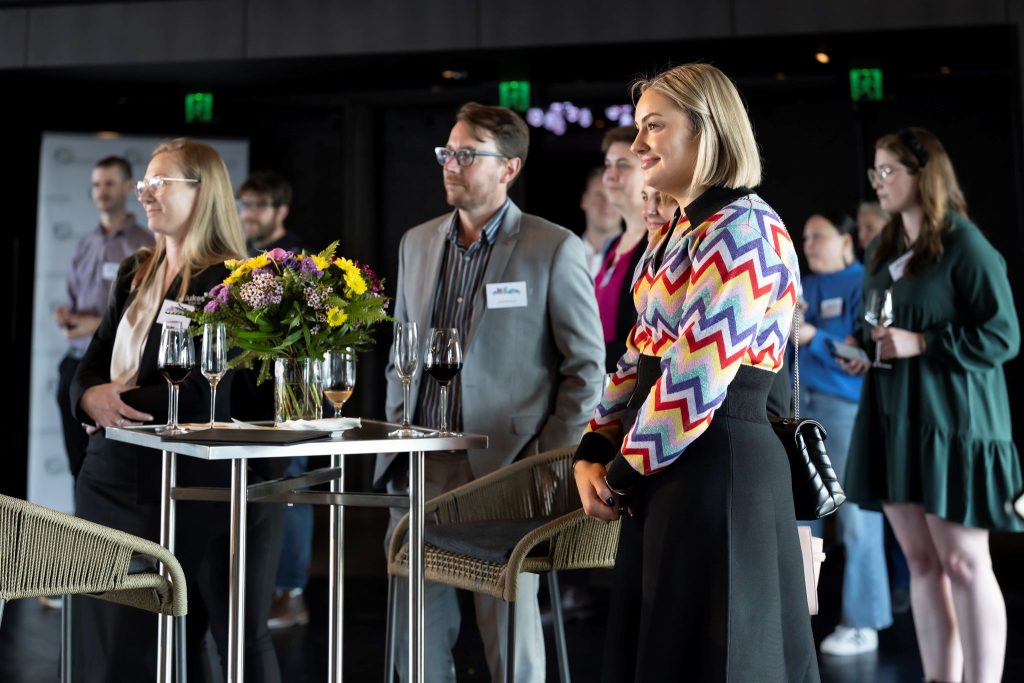
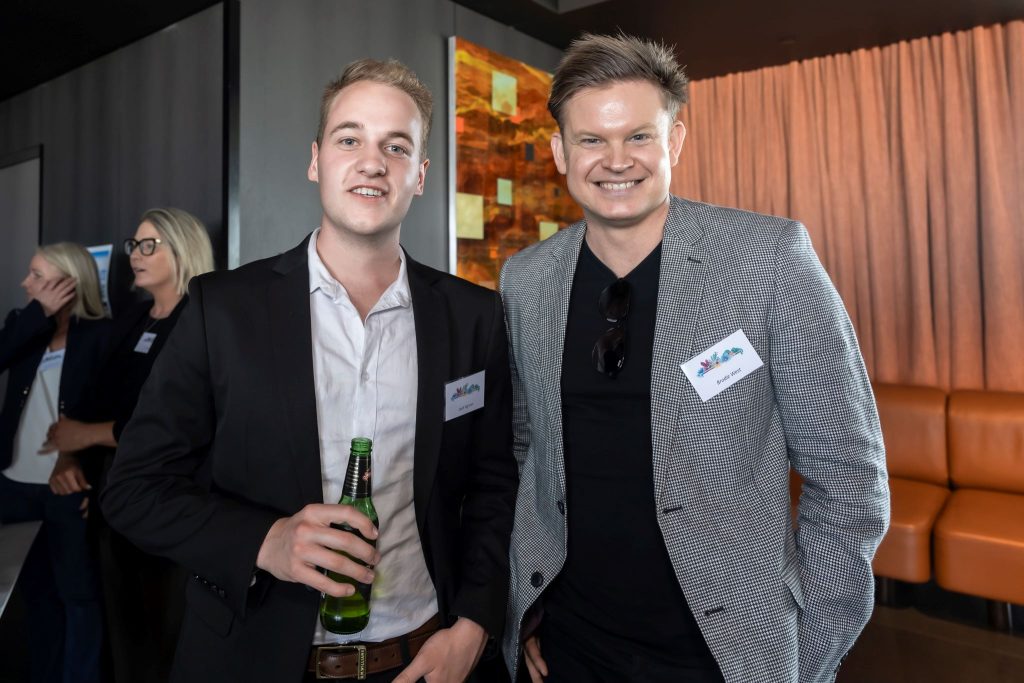
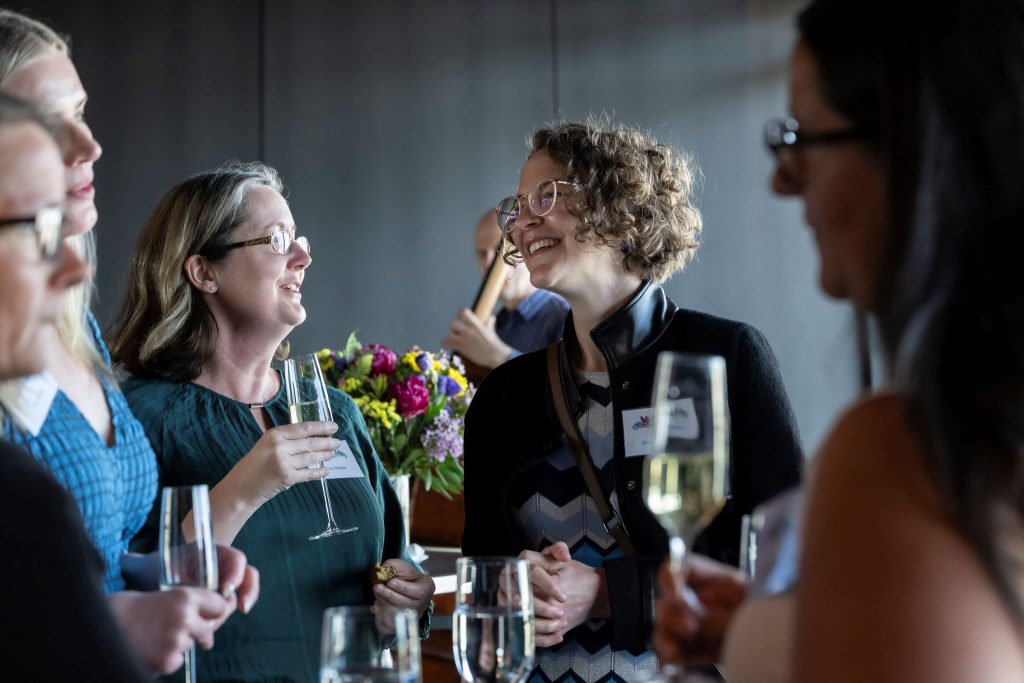
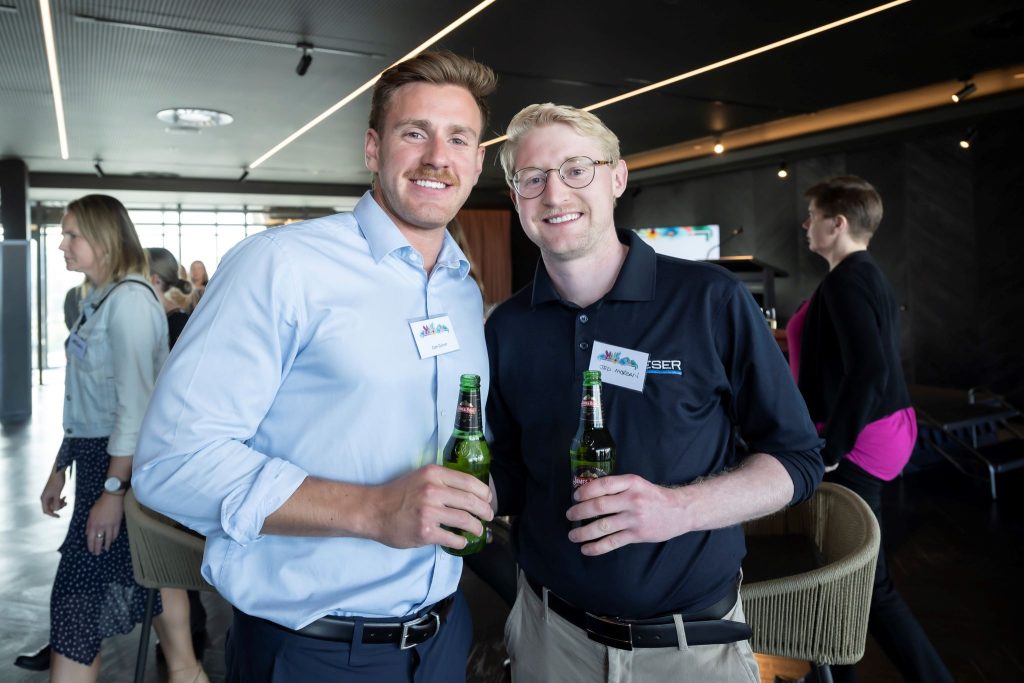
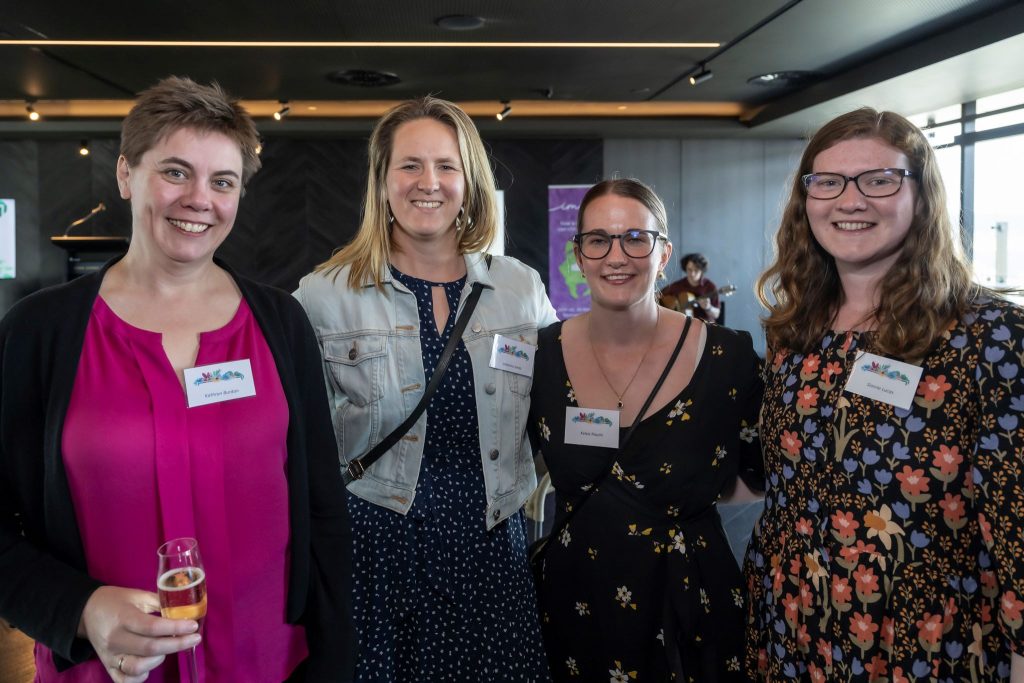
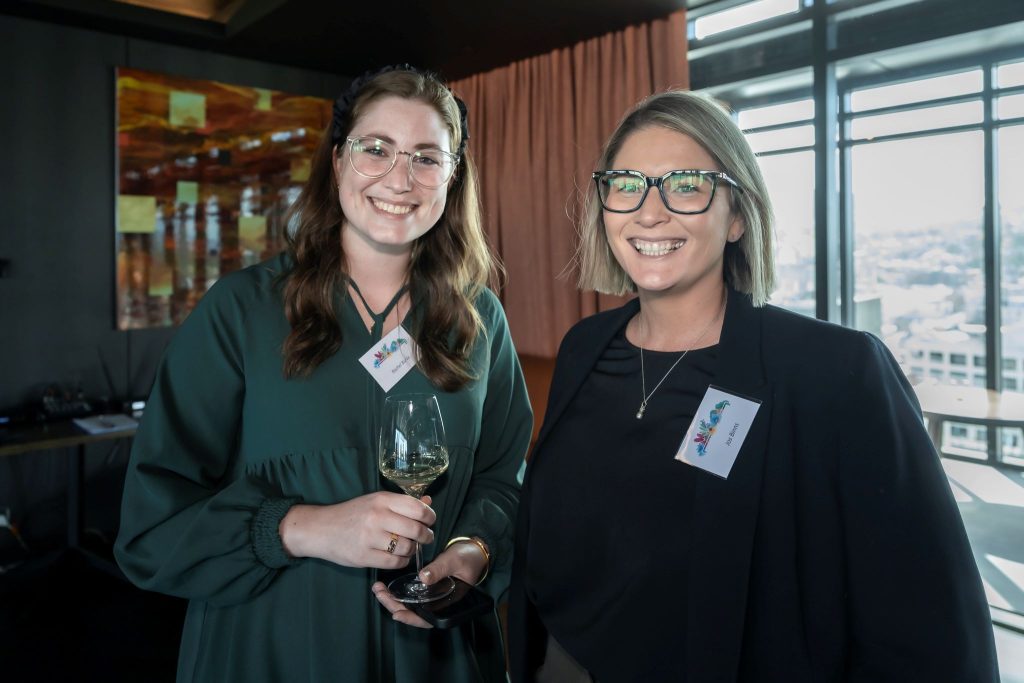
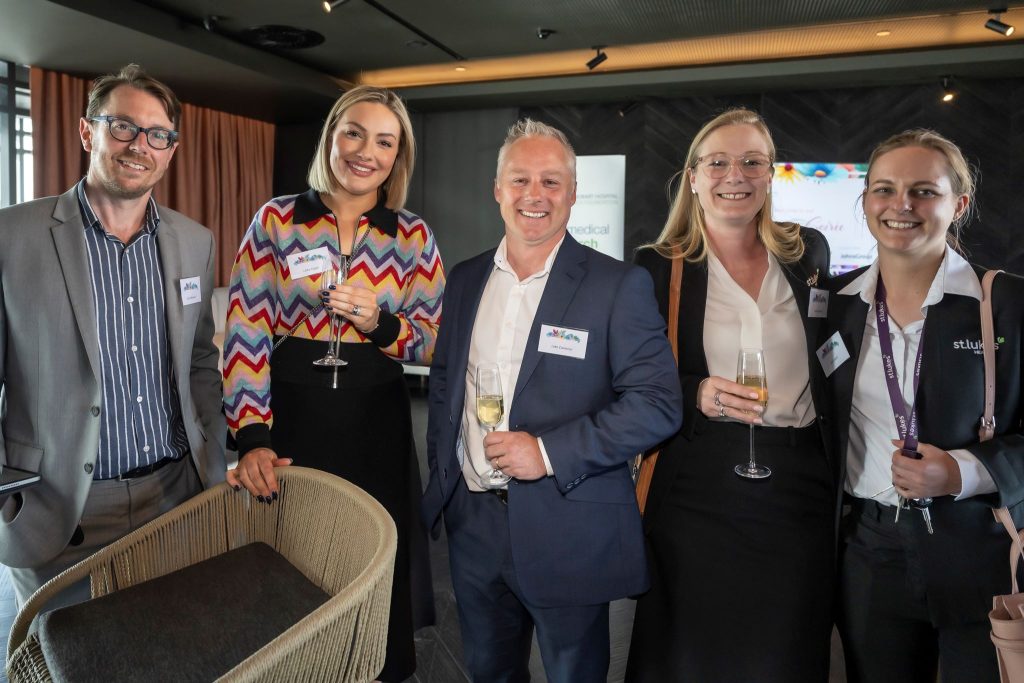
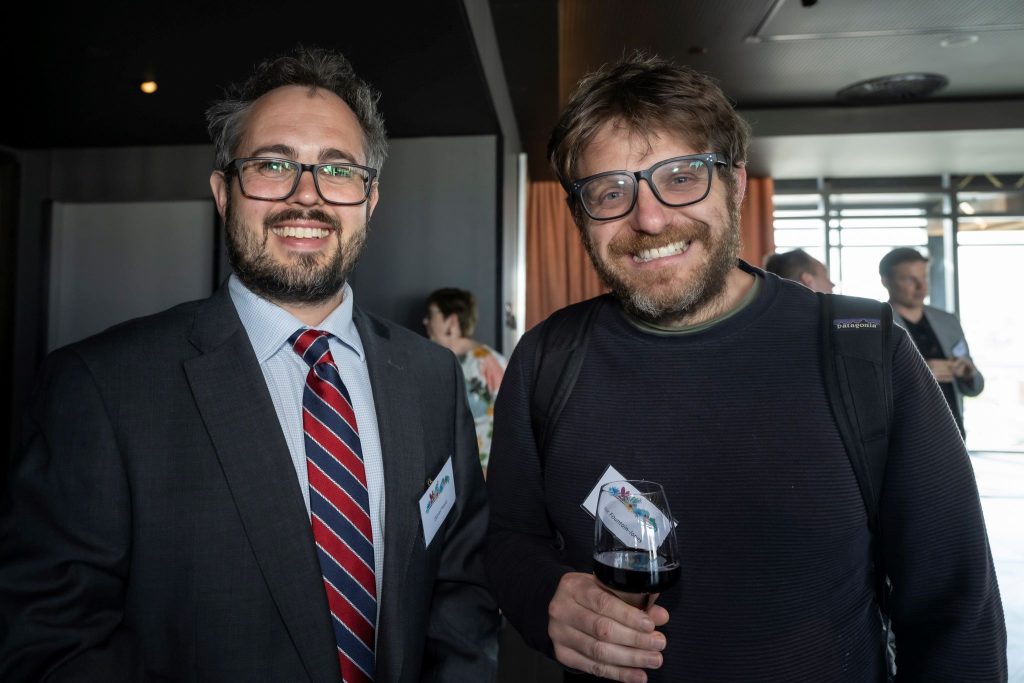
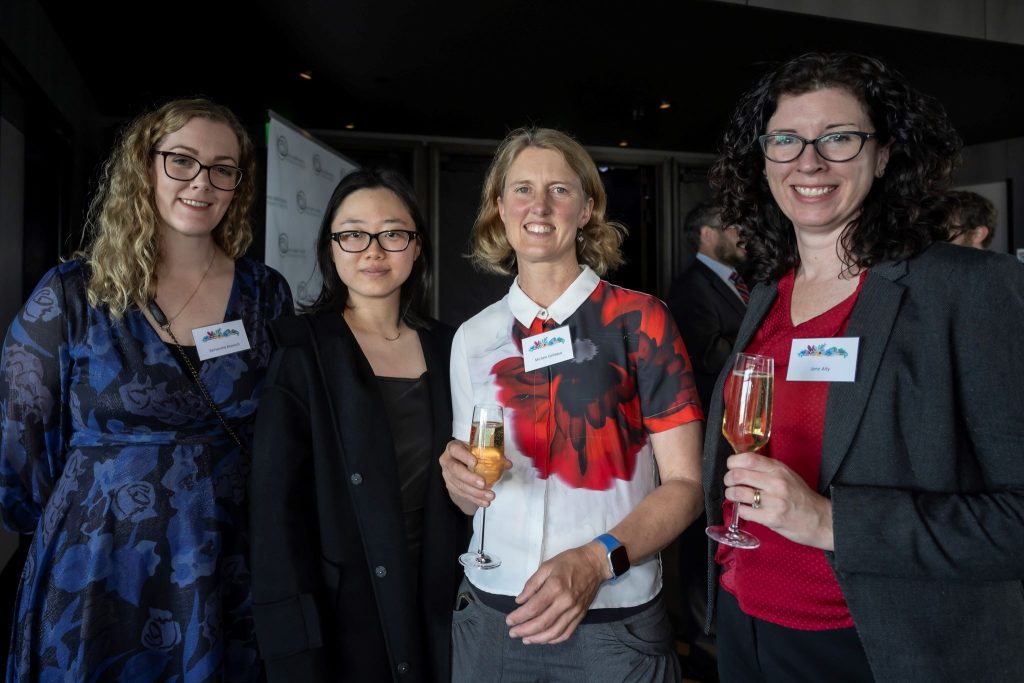
The Foundation’s Research Matters speaker series returned for a seminar on heart health with local Cardiologist, and senior clinical lecturer at the University of Tasmania, Dr Andrew Black. It was great to have Andrew share his expertise with our highly engaged community of Foundation supporters at the brand-new St Lukes Community Hub in Hobart’s CBD.
Over 45 minutes Dr Black discusses the causes of heart disease, what to do if you experience symptoms, how heart conditions are detected, the latest interventions for prevention and treatment, and some of the fascinating research that is taking place right here in Tasmania. It is a fascinating and informative discussion about the deadliest condition in Tasmania.
We’d like to thank St Lukes for supporting the event and hosting us in their brand new Community Hub!
If you enjoyed this Research Matters seminar, be sure to check out our other talks on dementia and prostate cancer.
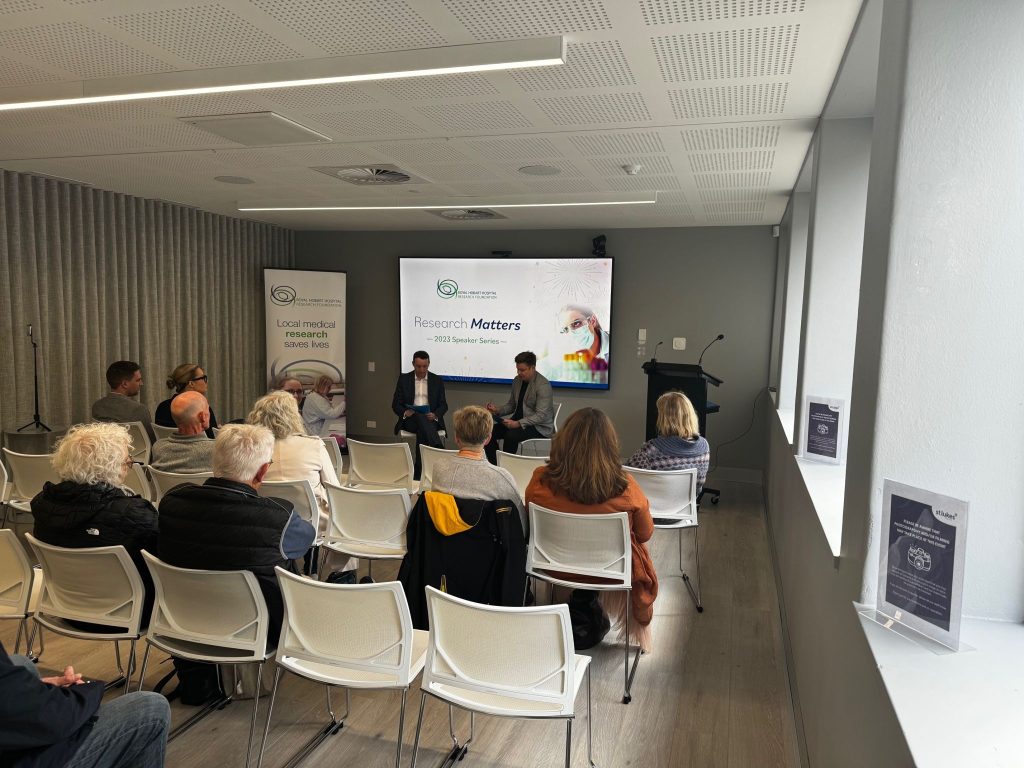
Ms Xinyi Wang is a Foundation-funded researcher who works at the University of Tasmania’s Wicking Dementia Research Education Centre. She is actively researching new approaches to detecting dementia.
What made you want to get into medical research?
I completed a Bachelor of Biomedicine degree that introduced me to various clinicians and researchers, broadening my exposure to the field. Subsequently, I pursued a master's degree in information technology, leveraging my expertise in biomedicine and artificial intelligence. This unique blend of disciplines enables me to harness cutting-edge computer technologies in medical research.
What is the most rewarding thing about being a medical researcher in Tasmania?
The Tasmanian population is strongly willing to actively participate in research. This abundance of data from the Tasmanian population enables us to efficiently conduct robust and comprehensive large-scale analyses at the population level.
How has the funding of the Royal Hobart Hospital Research Foundation helped you achieve your research goals?
Thanks to the Foundation’s grant funding, our research team can delve into the study of late-onset Essential Tremor (LO-ET), a condition characterised by the development of tremors in adults aged 60 and above. This specific type of tremor shows promising potential as an indicator of dementia risk. The funding from Foundation presents us with a valuable opportunity to objectively assess the hand motor function of individuals with LO-ET and compare its characteristics with other types of tremors, such as Parkinson's tremors. Additionally, we aim to investigate the association between LO-ET and the risk of developing dementia.
What research project do you have planned next?
Upon understanding the distinct characteristics of LO-ET, we can develop online hand motor tests that specifically evaluate types of hand movements or functions. By implementing these tests online, we can overcome geographic limitations and ensure accessibility for individuals residing in rural areas. Furthermore, since hand movement tests transcend language and cultural barriers, they can potentially be utilised globally, benefiting individuals worldwide.
Your donations to the Foundation can continue to support ground-breaking research into dementia. Donate today online, or by calling our office on (03) 6166 1319.
The Foundation's Research Matters speaker series returned for a seminar on prostate cancer, with researchers Dr Kelsie Raspin and Dr Liesel Fitzgerald and surgeon Dr Nick Davies coming together to discuss prostate cancer at the University of Tasmania's Menzies Institute for Medical Research.
We invite you to please enjoy this hour-long information session, where our panellists discuss the latest ways to detect prostate cancer, the importance of catching the disease early, the increased risk associated with age and genetics, and some of the most innovative treatment methods. It is a robust and informative discussion about one of Australia's most commonly diagnosed cancers.
Thanks to Josh Duggan for facilitating this discussion and to Hobart Private Hospital for supporting the event.
Research has shown that exercise positively benefits people both during and after cancer treatment. It can help patients with their energy levels, assists with stress and anxiety levels, strengthens muscles and improves mobility. However, we also know that after a cancer diagnosis, patients can find some days harder than others when it comes to exercise.
The Royal Hobart Hospital currently offers an eight-week exercise program for cancer patients, but we do not know if patients continue to exercise after the program ends.
To support the knowledge in this area, the Foundation is funding a research project that will examine what drives patients to stay active during their cancer journey. The new Understanding Physical Activity after Cancer exercise Therapy (UNPACT) study will explore what cancer survivors see as the barriers to ongoing exercise and what helps them stay active.
The new research project will be led by physiotherapist Sajina Mathew (pictured) and supported by a multidisciplinary team of clinicians across the Tasmanian Health Service. Together, this expert group of researchers will look at what patients find to be the barriers and enablers to physical activity. The findings will be used to make modifications to the Hospital’s existing short-term exercise program to ensure patients remain engaged in physical activity well into the future.
The Foundation is proud to be supporting such a significant study that will make a huge difference to the long-term health outcomes of our local community.
We rely on your support to continue funding influential cancer research projects like this one. To donate to cancer research, please email re******@*******************on.org or simply click here.
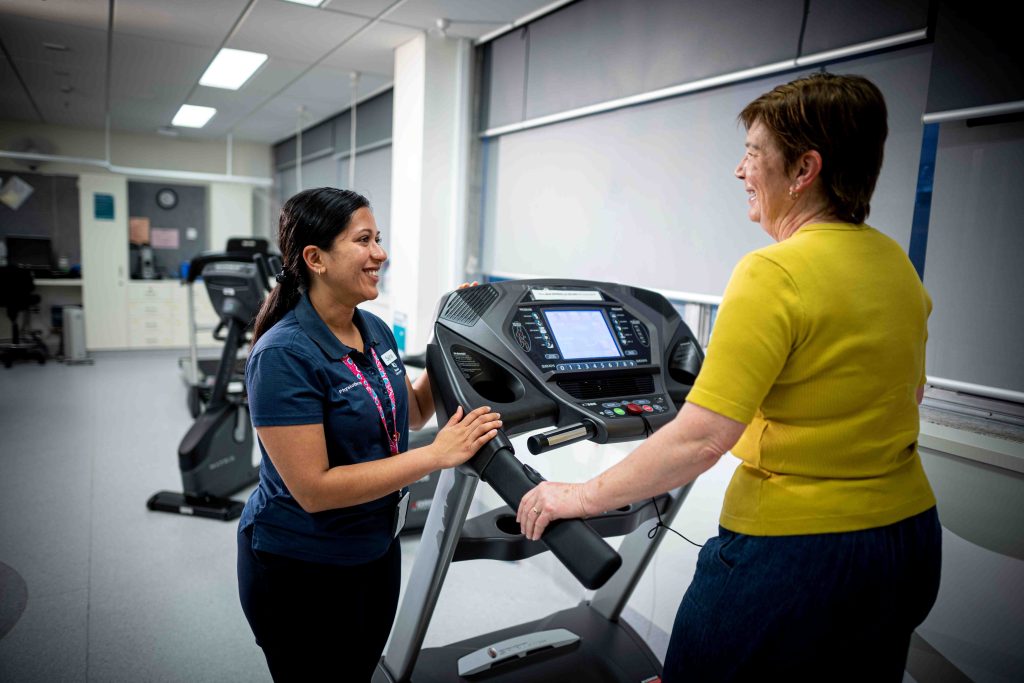
Ms Sam Bramich is a PHD Candidate at the University of Tasmania. Sam and her team of researchers have just received Foundation funding to identify the prevalence of rapid eye movement sleep behaviour disorder (RBD) in Tasmania.
What made you want to get into medical research?
I’ve always loved learning and after completing my master’s degree in Sleep Medicine I wanted to learn more about sleep and disease development, so this led me to start a PhD with the Wicking Centre at UTAS. My dad, who was a shift-worker most of his life, was also recently diagnosed with dementia, so this has fuelled my interest in investigating how poor sleep contributes to the onset of dementia and other diseases.
What is the most rewarding thing about being a medical researcher in Tasmania?
The enthusiasm of the Tasmanian community! I am constantly amazed at how willing Tasmanians are to give their time so freely to research, and I love having opportunities to talk to the community and show them how grateful we are for their participation.
How has the Royal Hobart Hospital Research Foundation funding helped you achieve your research goals?
Without the Royal Hobart Hospital Research Foundation funding, I would not have been able to conduct any of the projects needed for my PhD. The Foundation has allowed me to recruit over 2000 participants into my research project and purchase materials needed to explore which factors are associated with poor sleep and its progression to other diseases.
What research project do you have planned next?
With the help of the Foundation, this year my research team and I will be inviting participants in our sleep study to undergo smell testing and sleep pattern monitoring to investigate differences between people with and without isolated REM sleep behaviour disorder (iRBD). We will also be testing out the use of a home- based sleep study system to diagnose iRBD, which will allow easier (and more comfortable) access to sleep studies for people suspected of having iRBD.
Donations to the Foundation can continue to support researchers like Sam and allow them to undertake ground-breaking work. Please donate today online or call 03 6166 1319.
Thanks to the generosity of our local community, the Royal Hobart Hospital Research Foundation is proudly continuing its 26-year tradition of funding innovative research projects to improve the lives of our local community. Recently the Foundation announced that it will be granting more than $1.6 million over the next three years to continue this tradition of giving to fund life-saving medical research projects in Tasmania.
The grant funding will be distributed among Tasmanian researchers who are investigating a range of health issues including cancer, heart disease, dementia, and chronic diseases. Grants have been allocated to support innovative pilot studies, emerging research projects and multi-year investigations across these areas.
The Foundation’s CEO, Steph Furler, explains that these research projects will make a huge difference to the lives of people in Tasmania.
“It’s exciting to know that our researchers will be investigating a variety of health conditions, that will lead to better treatments and care for patients in Tasmania,” she said.
“We are so grateful to our local community who continue to support medical research projects, knowing that it will help improve the lives of people around them.”
Researchers in the 2023 Foundation-funded projects will examine a range of health conditions. Project include studying sleep and wake patterns to identify rapid eye movement (REM) sleep behaviour disorder, analysing tremors to develop a new pre-cognitive test for dementia, and looking at how precision medicine can be used to better care for men with prostate cancer in Tasmania. A team will also investigate critical decision making for patients with end-stage kidney disease, thanks to the Foundation’s inaugural Lowenthal-Muller grant.
Thank you again to everyone who continues to support the Foundation and ensure that medical research projects continue to thrive in Tasmania.
(Pictured: Dr. Kelsie Raspin is our 2023 Major Project Grant recipient)
To find out more about the projects that the Foundation has supported in 2023, please visit our research grants page.
Millions of Australians have insulin resistance, a silent condition that often has no symptoms. But left untreated it can lead to much more serious diseases like type 2 diabetes, cardiovascular disease, and dementia. We now need your support to raise $25,000 to find out what causes this concerning condition.
This essential funding will support Dr Dino Premilovac and a team of expert researchers to investigate the relationship between air pollution and insulin resistance. In this world-first study, Dr Premilovac will look at the impacts of air pollution from vehicles and bushfire smoke and if it triggers insulin resistance.
Dr Premilovac explains that “studies from around the world show that living close to a major road or in highly polluted cities is associated with increased risk of developing obesity and insulin resistance, but we do not understand how or why this occurs.”
“Our work is the first of its kind and will investigate how air pollution alters the function of the hormone insulin in the body to cause insulin resistance,” he notes.
This study is particularly relevant to Tasmanians, who are often exposed to extremely high levels of air pollution from bushfire smoke and wood heaters. Tasmanians were exposed to extremely hazardous air particles during the 2020 bushfires when a thick cloud of smoke blanketed the state for weeks on end. We're further exposed to this air pollution during winter, as we sit by roaring wood fires to stay warm.
The Foundation’s CEO, Stephanie Furler, called for the Foundation community to give generously and support this essential project. “I encourage you to give generously and help us raise $25,000 to fund this life-saving campaign.”
“Not only will this research help change lives, but it will be instrumental in shaping public policy and support future research into other diseases that are affected by insulin resistance.”
Your donations will help support this life-saving research. Donate online today or call (03) 6166 1319.
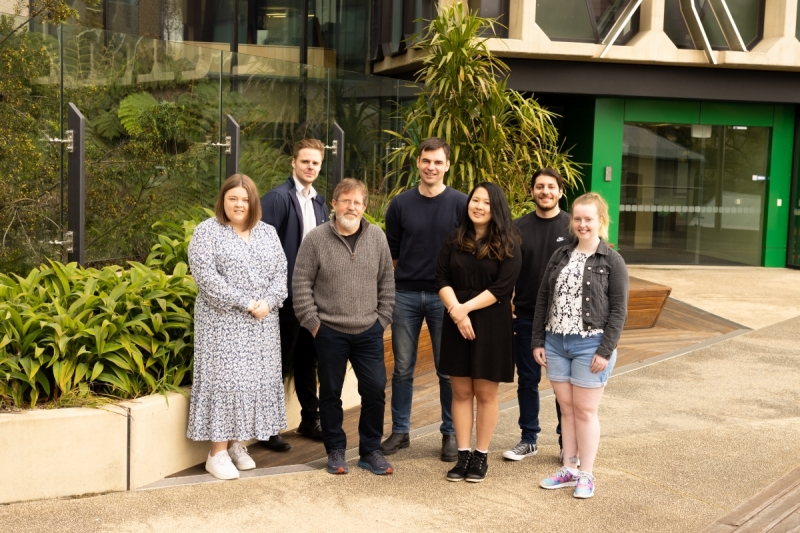
Dr Niamh Chapman is an emerging force in Tasmanian medical research, with a special interest in heart disease. She shares how she got into the field and how the Foundation’s grant funding has furthered her research.
What made you want to get into medical research?
I have always been passionate about equity in society and eventually, I found my way to public health. Early mentors were instrumental in encouraging me to pursue a career in medical research.
What is the most rewarding thing about being a medical researcher in Tasmania?
Tasmania has some of the worst health statistics in Australia, so there is an urgent need to tackle these health and social issues. Researchers can work with local healthcare providers, the community, and other researchers to identify solutions. The Foundation plays such a key role in this process, and it is so exciting to benefit directly from that.
How has the Royal Hobart Hospital Research Foundation funding helped you achieve your research goals?
I aim to undertake research that has real improvements for our local community. The Foundation funding enabled me to do just that, as I worked closely with a local cardiologist, Dr Andrew Black, to identify ways to improve the delivery of a clinic to manage chest pain.
What unexpected things have you learned along the way as a medical researcher?
I am amazed at how generous and supportive the research community is! I am also surprised how much I get to link with community members, healthcare providers, and policymakers as part of my work.
What research project do you have planned next?
So many! One project I’m looking to start work on will allow me to compare the way chest pain is managed across the country, to identify what is working well and what could be improved.
Donations to the Foundation can continue to support researchers like Dr Chapman and allow them to undertake ground-breaking work. Please donate online today or call (03) 6166 1319.
This year the Royal Hobart Hospital Research Foundation is proud to be celebrating our 25th anniversary! Over that time, thanks to generous community support, we have invested $10 million across hundreds of local medical research projects. We've highlighted a few of these projects below, showing your support has helped improve countless lives both here in Tasmania and around the world.
In 1999 The Foundation started supporting Dr Simon Brown and his team, who were exploring treatments into potentially lethal jack jumper ant stings. As a result of this ground-breaking research, a jack jumper desensitisation clinic was established at the Royal Hobart Hospital and deaths from jack jumper ant stings have been prevented in Tasmania ever since.
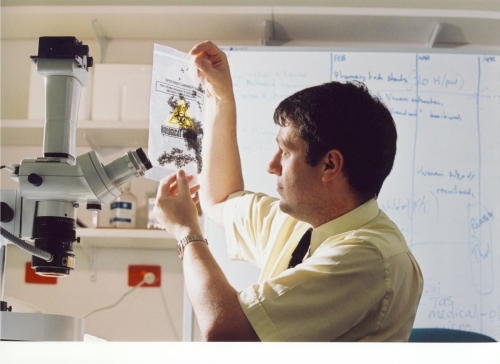
Glaucoma is an eye condition that, if left untreated, can cause blindness. Over 25 years ago, the Foundation supported the Glaucoma Inheritance Study in Tasmania under the guidance of Professor David Mackey AO to capture DNA samples to help find the genes that cause the disease. It has now become one of the longest-running investigations that helps predict who is at risk of developing the disease and preventing blindness.
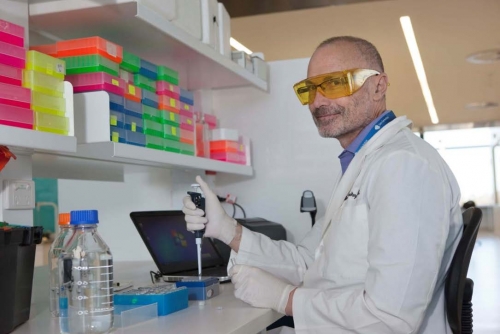
A Foundation-funded study led by Professor Peter Dargaville has gone on to change the lives of premature babies around the world. In 2012, the team developed a less invasive approach to deliver life-saving medication to help these infants breathe and limit complications. After further global studies, the Hobart Method was proven to be a game-changing therapy and quickly gained traction in neonatal intensive care units around the world.
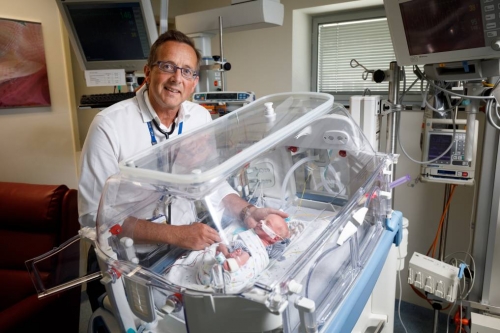
More recently, the Foundation has been funding research into the development of a non-invasive screening test to detect the risk of Alzheimer's disease. Led by Associate Professor Jane Alty, this tool will enable people with early-stage Alzheimer’s to commence intensive risk modification and enter drug trials before their brain is irreparably damaged.
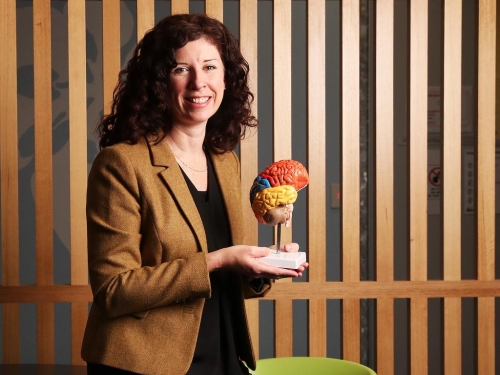
Thank you to all of you who have been on our journey with us over this time - we couldn't do it without you. But there is still so much more research to be done! Please donate today, so we can continue to fund incredible medical research right here in Tasmania and improve outcomes for people around the world. Call our office on (03) 6166 1319 or donate online.
Prostate cancer is the most common type of cancer to affect Tasmanian men. For some, genetic factors mean they have a higher risk of developing an aggressive form of the disease. But thanks to recent breakthroughs in genetic testing, there are now new ways of diagnosing patients and allowing for more targeted treatments.
With all this new knowledge, it is vital that prostate cancer patients are engaged around the use of genetic information and the outcomes that matter the most to men are addressed. And that’s exactly what Professor Jo Dickinson and a team of expert researchers have set out to achieve in their new study “Precision Medicine for Men with Prostate Cancer in Tasmania,” which was funded by a Royal Hobart Hospital Research Foundation grant.
This is the first study in regional Australia to look at how men with prostate cancer feel about the use of genetic information in diagnosis and treatment of the disease, and determine which outcomes are most important to them. The team will be able to use this information to deliver better patient care and research in Tasmania.
Professor Dickinson is passionate about her work and believes it’s an inspiring time to be working in genetic research.
“We’re now seeing game-changing improvements in treatment options that can be delivered through genetic discoveries, not just in prostate cancer but in many diseases,” she explains.
This Foundation-funded study is expected to be completed by 2023, with patient feedback being incorporated to deliver better and more targeted care. We need your support to continue to fund innovative, patient-focused research like this. Make a donation online or call our office on (03) 6166 1319 to make your donation today.
Tasmania has the highest incidence of Cystic Fibrosis (CF) of any state in Australia, with approximately 110 people living with CF. One of the most dramatic impacts of CF is a dysfunctional immune response – this includes a hyper-inflammatory response that often proves ineffective when faced with ongoing respiratory infections. The associated impact on health and wellbeing for those living with CF can be significant.
Local research undertaken by Dr Louise Roddam and her team, in collaboration with researchers at the University of Sydney and funded by the Royal Hobart Hospital Research Foundation, has recently explored the widespread nature of immune dysfunction in people with CF. Most particularly, the team has defined the nature of dysfunction at the greatest level of detail compared to any studies undertaken to date. As a result of this analysis, they have observed a difference in important regulatory immune cells amongst people with CF when compared to the wider population. Notably, this confirms a negative impact on lung function and also reflects lung tissue damage.
This finding is important because this investigation can now be used to continually monitor lung function and disease progression in people with CF. In advancing the techniques used by Dr Roddam and her team, future analyses can now also be undertaken using only very small volumes of peripheral blood (about half a teaspoon), far less than through previous approaches.
Coupled with these steps forward, this new insight into immune dysfunction amongst those living with CF could also enable a shift in care towards a greater focus on treating immune defects while also better targeting infection. Importantly, this will ultimately decrease the overall impact of CF in Tasmania! The new approach offers a means of evaluating the effectiveness of medication used to respond to CF and immune dysfunction, further aiding the management of this condition.
As part of the team’s investigations, they also identified a widespread degree of immune dysfunction in the parents of CF children enrolled in the study, noting that these parents were not living with CF themselves. While we already know that 1 in 25 Australians are CF carriers, this research suggests that these folk also have subtle changes in their immune cells which may potentially influence susceptibility to the development of a number of disorders. While the clinical consequences, if any, are yet to be fully investigated, this research provided a basis for future exploration.
To progress this research, Dr Roddam’s team has developed an ‘antibody panel’ to assess immune cell dysfunction further. But until recently, the wider studies undertaken in Australia have focused on using specialised antibodies that have only been available at the University of Sydney and which rely on the use of analytical equipment that is not currently available in Tasmania.
To overcome this challenge, a new project, jointly funded by the Royal Hobart Hospital Research Foundation and Cystic Fibrosis Tasmania, aims to modify and optimise the antibody panel so that local researchers can begin steps to further profile immune cells. This investigation will not only use more widely available antibodies, but also a locally developed instrument at the University of Tasmania.
We’re delighted to know that this project will deliver multiple benefits! It will build local research capacity and strengthen research ties between the RHH, UTas and CF Tasmania, while also opening up new opportunities for Tasmanian people with CF to participate and benefit from local research. It is also anticipated that local expertise in this analysis will increase the likely success of future collaborative research applications with other institutions across Australia, advancing CF research and its impact even further.
Paula Wreidt, Executive Officer of Cystic Fibrosis Tasmania says that she is “Thrilled with the developments that have been able to progress through the partnership with the Royal Hobart Hospital Research Foundation that would have otherwise not have eventuated, and looks forward to the next phases of this crucial study for Tasmanians living with CF.”
You can help us continue to fund world-class health and medical research right here in Tasmania by making a donation today.
Dr Mohammed Salahudeen is a lecturer and postgraduate coordinator within the School of Pharmacy and Pharmacology at the University of Tasmania. In addition, he also leads a Foundation-funded study into a new program of intervention that aims to decrease the impact of several drugs that are often used in combination when treating older adults in hospitals. It’s a vital study, especially for Tasmania’s ageing population.
Dr Mohammed Salahudeen says his journey to becoming a doctor in Australia was a long one and one that covers many countries. Originally hailing from Kerala in India, he has also lived and studied in the United Arab Emirates and New Zealand, before finally calling Australia home. Dr Salahudeen is a clinical pharmacist with extensive expertise in the areas of medication safety and quality use of medicine in older adults. He completed his PhD in 2015 from the University of Otago, New Zealand, and holds a range of other degrees from international universities, including his MBA. After achieving his PhD, Dr Salahudeen was then awarded a prestigious fellowship from the University of Otago to commence his postdoctoral research investigating the risks of multiple medication use in older New Zealanders.
Dr Salahudeen enjoys an outstanding reputation for his contributions to multidisciplinary research teams, particularly those working on new models of care aimed to improve the quality use of medicines. Recent highlights include leading an interventional project, funded by the Foundation’s Incubator Grant program, which is believed to be the first hospital-based study to investigate the cumulative (and potentially detrimental) effect of a variety of medications that contain anticholinergic properties (including opioids, antidepressants and benzodiazepines). Exploring the side effects of these medications in combination is aimed to improve a range of outcomes including length of hospital stay, falls and readmission. In another funded project from the RHHRF, his team investigates the nature, risk factors, prevention and management of other adverse drug-related hospital admissions in older adults with dementia. We know Dr Salahudeen’s work is making a real impact, locally and nationally.
Throughout his career, he has worked on several research projects and has co-authored several peer-reviewed publications within the scope of clinical pharmacy. But fundamentally, Dr Salahudeen has a strong interest in real-world studies in older adults, with his other areas of research focusing on dementia, aged care, evidence-based medicine, and mental health. Dr Salahudeen is also an active member of various associations, including the International Pharmaceutical Federation (FIP) and the Australasian Pharmaceutical Science Association (APSA). Within his role, he endeavours to conduct research and inspire his research students to explore new boundaries. His research aims to positively impact the health of the ageing population through reduced medicine-related harm that ultimately improves the person’s quality of life.
Outside of his professional pursuits, Dr Salahudeen is a passionate Movember fundraiser. Each year, he grows a moustache to raise awareness for men’s health issues such as prostate cancer, testicular cancer, and suicide prevention. He has been doing this regularly for many years and has raised a considerable amount of money for the Movember Foundation.
You can help us to continue supporting local medical researchers by making a donation today.
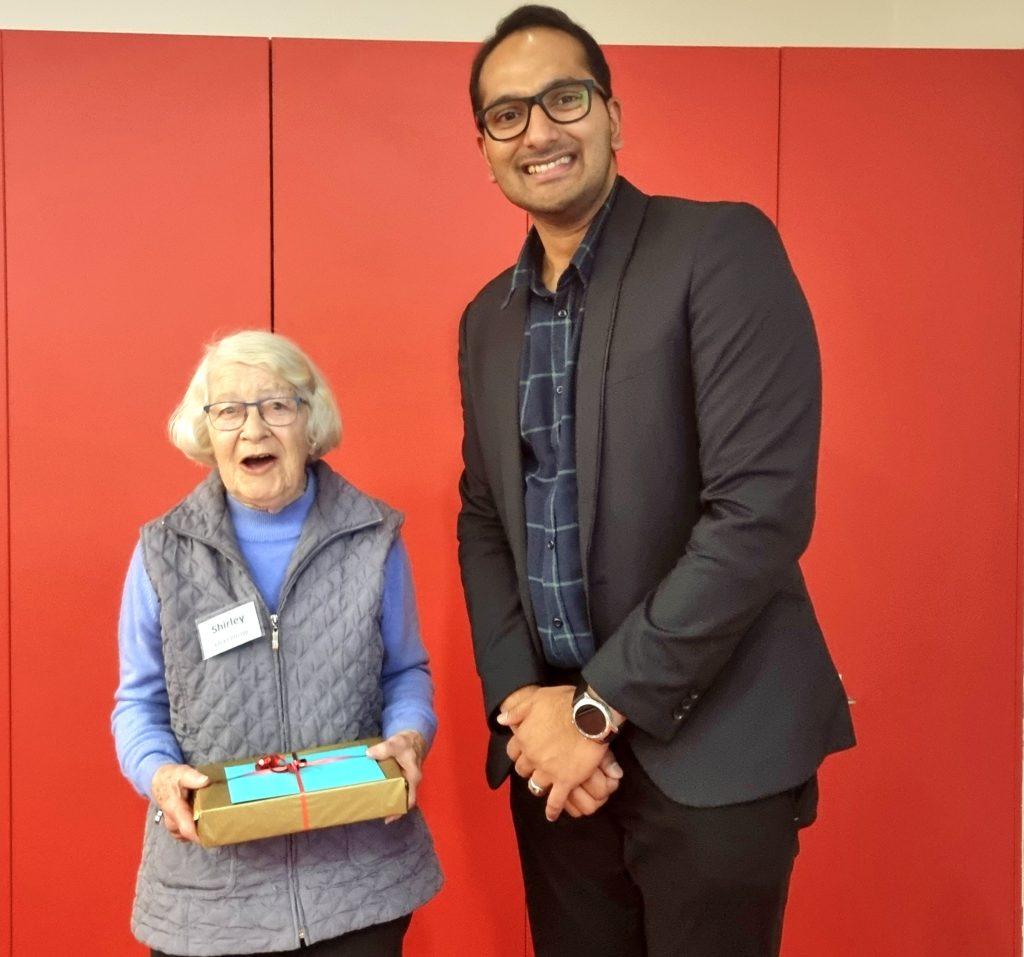
Tassie’s own Prof Peter Dargaville has been bestowed with a prestigious honour today as the outcomes from his clinical trial gained coverage in the internationally acclaimed Journal of the American Medical Association (JAMA).
After its genesis at the Royal Hobart Hospital just over ten years ago, the global study has proven that The Hobart Method is a better approach to supporting the breathing patterns of premature babies. It has already been clinically proven as a life-saver and a game-changer.
After receiving initial funding from the Foundation in 2012 and further local investment during its formative stages, evidence gathered through these early phases of the investigation attracted attention from the National Health and Medical Research Council. This enabled Prof Dargaville and his team to gain a significant injection of funds - the trigger required to roll this out as a clinical trial across the globe.
Over recent years, the study has engaged the families of 485 premmie babies in the first hours of life across thirty-three neonatal intensive care units in eleven countries. Although only a small proportion of babies are born at less than 30 weeks’ gestation, these tiny ones are at high risk of breathing difficulty given their lungs haven’t yet developed. The Hobart Method uses a far less invasive approach to delivering a substance called surfactant through a tiny narrow tube gently placed into the infant’s windpipe, helping to disperse this deeply into the lungs and aiding the vital process of breathing.
The study, led by local neonatologist Prof Dargaville and his team, aimed to improve upon the current standard of care, seeking to limit the development of chronic lung disease that can have lasting effects on the lives of preterm babies.
The study engaged skilled team members from the areas of engineering and computer science, together with clinicians and pharmacists, combining their expertise to deliver a unique and cutting edge technologically driven approach that makes such a powerful impact on families worldwide.
Prof Dargaville said that it was a great privilege and very exciting to see that what began as an idea in clinical practice at the RHH has now become an accepted therapy of proven benefit for babies worldwide.
“The findings of the study have absolutely cemented the idea that using a minimally invasive technique to give surfactant can give these babies an important advantage in those critical early stages of life.”
Can this healthier start to life can have a lasting impact? The answer is now being examined in an innovative follow up study in which parents of infants involved in the trial will now go on to detail their child’s health and wellbeing in the first two years after birth.
“Our results suggest that the use of The Hobart Method from day one will translate into a healthier start to life for premature infants around the world,” Prof. Dargaville concluded.
The results of this trial are currently being presented at neonatal conferences world-wide, and The Hobart Method has already rapidly gained traction in many neonatal intensive care units around the world.
We are incredibly proud of the contribution that the Foundation has made to this Tasmanian-based study and look forward to working closely with Prof Dargaville as his study progresses.
Local medical research saves lives, and thanks to the support of our local Tasmanian community we have been able to see an outstanding and life-saving idea exported and adopted globally for the benefit of generations to come.
You can support game changing research like the Hobart Method by making an online donation today. Thanks for supporting local medical research!
Are you, or someone you know affected by a rare disease? Tasmanian families who have had personal experience of conditions such as these often feel isolated and alone. We know this local research project is vitally important to supporting the health and wellbeing of so many across our community, young and old, now and into the future.
Generously funded by a Tasmanian family, this study sees a skilled local team working closely with the newly established Tasmanian Rare and Undiagnosed Diseases Network (TRUDN). A key aim of the investigation is to build an initial profile of the number and impact of these conditions in our local community. Led by local researcher Dr Mathew Wallis, who is also Clinical Director of the Tasmanian Clinical Genetics Service, an important preliminary focus for the team will lie in simply uncovering the prevalence and diversity of rare disease in Tasmania. With better understanding, we can better support these families.
What is TRUDN?
TRUDN is a group of health professionals, researchers and consumers that aim to improve awareness, diagnosis and treatment of Rare Diseases in Tasmania. The TRUDN vision is to lead the delivery of equitable healthcare to Tasmanians living with Rare Diseases, along with driving new innovation and contributing to local, national and international projects in Rare Diseases.
Relevance to Tasmanians
This study is so important because the collective impact of rare diseases in Tasmania is, at this point, unknown! Rare diseases are generally complex, serious and progressive conditions that begin to show early signs in childhood. These conditions often impact on several of the body’s core systems, in many instances there are multiple and ongoing health and psychosocial issues. Naturally these require continuing support through coordination of complex care.
One of the greatest challenges in understanding the impact of rare diseases is the limited data available - this is where the team’s study comes in! Rare disease data needs to be measured and tracked effectively to understand current Tasmanian needs while also better preparing for the future. In Tasmania, as in many other Australian states, there is a significant lack of evidence and public health data around the impact upon the patients’ families and the wider community.
What we need to know!
An undiagnosed disease often presents a complex challenge. Most undiagnosed diseases are rare, but there is a spectrum of rare disease types. Around 80% of these are genetic. While rare diseases are defined as a condition affecting less than one person per 2,000, because there are over 7,000 rare diseases, they collectively affect approximately 6-8% of the Australian population – that’s a significant number. We currently have no idea which of the 7,000 known rare diseases are prevalent in Tasmania and so Dr Wallis and his team are on a quest to find out!
What’s next?
This important project is part of a broader plan to identify, and later address, the needs that arise from rare diseases in Tasmania. These could include access to care, accurate and timely diagnosis (including screening for early detection), access to therapies, clear care pathways and provision of support beyond the health domain. As this study will also contribute to uncovering otherwise missed opportunities for earlier intervention, identifying and addressing these needs in Tasmania is critically important. For many families, this is a long-awaited study that will form the foundation to so much more vital medical research.
The Royal Hobart hospital Research Foundation’s purpose is to pursue better health for Tasmanians through research, but we can’t do this without your help.
You can make a donation online today or call our friendly team to make a donation via the phone on (03) 6166 1319. Thank you for supporting local medical research.
The Royal Hobart Hospital Research Foundation is proud to have first supported the Glaucoma Inheritance Study in Tasmania in 1999 and notes that this has become one of the longest-running investigations that works to ensure Australians know that glaucoma runs in families. This is vital as, sadly, glaucoma can often be left undetected – in fact around half of those in our community with glaucoma area unaware of this until their condition becomes advanced.
This is distressing. Untreated, glaucoma is the leading cause of blindness worldwide and there are many in our local community who have a genetic predisposition toward developing this condition.
Over two decades, this Tasmanian-based study has developed the world’s largest family biobank of glaucoma, featuring over 2,000 patients and a further 3,000 of their relatives. Building awareness has enabled better education and support to be provided to families, but the need for great research doesn’t stop there.
In 2021 Professors Alex Hewitt and David Mackey received funding to continue their investigations around whether a genetic risk score for glaucoma could be used to better identify people at risk of glaucoma blindness. If successful, results from this study will deliver valuable evidence to support glaucoma screening and monitoring in Australia, providing scope for the risk of blindness to be detected early – the aim is that patients will require less treatment and, most importantly, fewer people will go blind.
Both lead investigators are alumni of the University of Tasmania, with Prof Hewitt graduating in 2001. He obtained his PhD from Flinders University in 2009, exploring glaucoma with the motivation to better understand this condition, often labelled the "sneak thief of sight".
Since 2014 Alex and his team have been using world-class technology to better understand and treat inherited eye diseases. In 2016 and 2018 Alex received NHMRC Research Excellence Awards for the top-ranked applicant for a Practitioner Fellowship and Program Grant – that’s an outstanding achievement in such a highly-competitive arena. His research team, in conjunction with researchers across Australia and overseas, has also been actively involved with the identification of genes and risks associated with glaucoma, macular degeneration and myopia.
Prof Hewitt said the specific aim of this current Foundation-funded study is to determine the prevalence of glaucoma (including the risk of developing this) amongst people using a technique called ‘polygenic risk profiling’. As part of a toolkit used in genetic risk prediction, this develops a score that will help guide more targeted approach to timely diagnosis and earlier intervention.
“We have recently developed a genetic risk score for use in detecting primary open angle glaucoma, so now we’re working to understand the effectiveness of this - applying this in a local, population-based setting across Tasmania“ he said.
Many of us know someone who has been impacted by eye disease, they may even have been directly affected themselves. This is a vital study, and we know you’ll want to be kept up to date as Alex and his team progress with this over the months and years to come.
You can donate online today to help support researchers like Alex, and other local researchers in their quest to uncover more insights into diseases and conditions that directly affect the Tasmanian community.
Dr Dean Picone will be a familiar name to many of you. That's because the Royal Hobart Hospital Research Foundation has funded several of Dean's studies over the years and we have been privileged to profile his research previously on several occasions, including at various events.
We’re excited about the research he and his team are doing to develop more effective methods of monitoring blood pressure. Why? Because this research is vitally important to all Tasmanians, now and into the future.
Dr Dean Picone is a local Tasmanian researcher within the Menzies Institute’s Blood Pressure Research Group. He has an interest in ensuring blood pressure is measured accurately and has a good reason for this specific research.
While the statistics are startling, fortunately, if high blood pressure is correctly diagnosed and treated, the risk of heart disease and stroke is markedly reduced.
However, to ensure a timely and correct diagnosis can first be made, blood pressure must be measured accurately. This is easier said than done, and that’s where this research comes in.
For more than 10 years, the Blood Pressure Research Group of the Menzies Institute for Medical Research, led by Professor James Sharman, has been working in close collaboration with the Royal Hobart Hospital Cardiology Department.
“We are extremely grateful to the RHH Cardiology Department. The partnership is unique and attracts the envy of other blood pressure researchers from around the world,” said Dr Picone.
“Considerable investments in funding achieved through several bodies, including the Foundation, have generously supported this research program through a range of grants over many years.”
Over this time, the team has generated significant new knowledge related to the accuracy of blood pressure measurement. They have identified that standard blood pressure measurement using an inflatable cuff is actually more inaccurate in people at higher risk of cardiovascular disease – the very people who need an accurate diagnosis.
The team has now identified specific factors that are related to the inaccuracy of blood pressure measurement. This means they are now in a position to begin solving such a longstanding problem. This is great news!
“One of the most critical factors is the shape of the blood pressure ‘waves’ that are transmitted through the body every time the heart beats. The team will analyse this previously unutilised information to begin improving the way blood pressure is measured,” said Dr Picone.
“The aim of the current project is to apply machine learning techniques to the vast quantities of information derived from blood pressure waves and create a more accurate, individualised method of blood pressure measurement,” he said.
To achieve their important research objectives, the team recently collaborated with the Baker Heart and Diabetes Institute’s Computational Biology and Clinical Informatics laboratory. It was this multi-disciplinary partnership that helped lead to the development of an application for the 2021–2023 Foundation's Major Project Grant.
Facing an intense degree of competitive pressure for this $450k grant, the team are excited about what their success in achieving this means to driving their research program further.
The ultimate aim of the research Dr Picone and his team are undertaking is to improve the accuracy of blood pressure measurement, thereby helping reduce preventable cardiovascular diseases in Tasmania, and eventually globally – an aspiration which has the potential to impact millions of lives.
“I would like to thank the Royal Hobart Hospital Research Foundation and its generous supporters for funding this project and all the other important medical research happening in Tasmania,” Dr Picone said.
You can help fund incredible research like Dr Picone's by simply by making an online donation today. Thank you for supporting the health and wellbeing of the Tasmanian community.
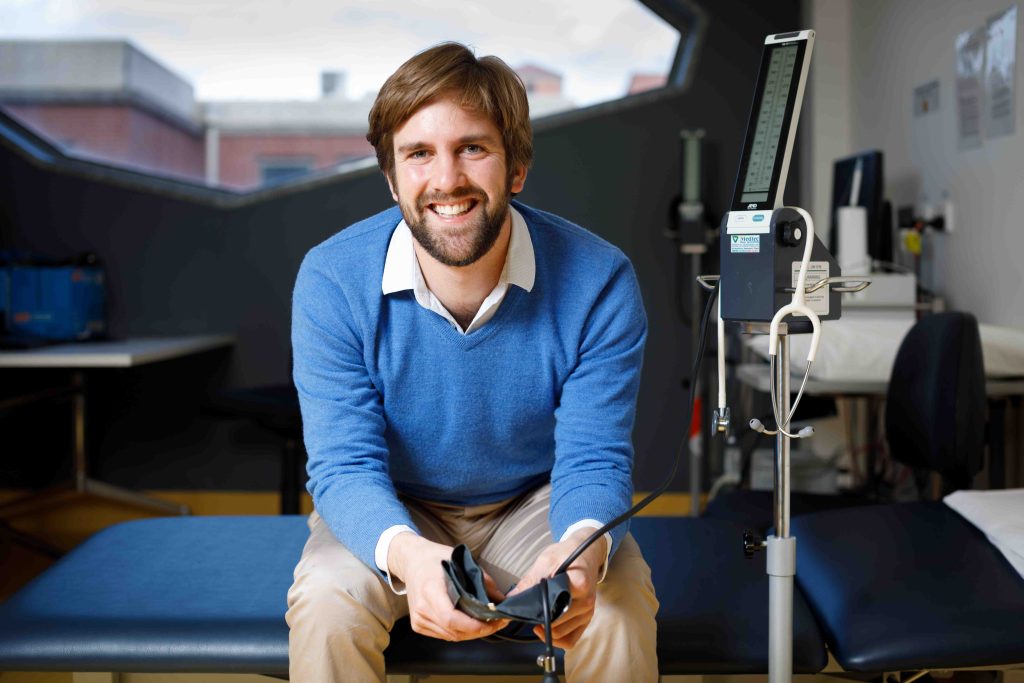
Chances are everyone knows someone working in the building industry - maybe you work, or have worked, in the industry yourself? Given the number of people this sector employs, construction has become the third largest industry in Australia and 2021 has seen Tasmania’s building and construction industry continue to boom even further.
A vital Tasmanian study, funded by the RHH Research Foundation in 2021, particularly hits home when knowing it could be you, your family or your friends that could be impacted by a shocking disease that can occur from just “going to work”.
Well-known local researcher, Prof Graeme Zosky, is leading this important Project Grant study, together with RHH respiratory medicine specialist Dr Nick Harkness. Prof Zosky is Deputy Director at the University of Tasmania’s Menzies Institute for Medical Research and also a Professor of Physiology at the School of Medicine. As a respiratory physiologist, his research looks at ways to better understand how our lungs function.
This is an essential and urgently-needed study that takes insight from Prof Zosky’s deep expertise in this area. We’ve discovered it is as compelling to our supporters as it is to the research team and those in the community that it stands to benefit. It has been generously supported by Blundstone Australia who knows that this local research will not only make a difference to so many Tasmanians, its impact will be felt by many in this industry, right across our country.
Relevance to Tasmanians
We know that exposure to dust from cutting artificial stone for benchtops used in kitchens throughout Tasmania is causing accelerated silicosis in more than 20% of workers. The aim of this project is to find new ways to prevent and treat this incurable, and often fatal, disease that is impacting Tasmanians at an accelerated pace. While we currently lack data specific to Tasmania, national studies suggest that 20-30% of workers involved in dry-cutting engineered stone have signs of silicosis.
What do we know?
Inhalation of dust from artificial stone benchtops, now almost universal in new kitchens, can cause silicosis – an incurable, debilitating lung disease that many of us would already have heard of in relation to working with asbestos. But unfortunately, this version of silicosis is more severe and progresses more rapidly compared to traditional forms of dust-induced lung disease which generally develop more slowly over a period of 20-30 years. Most workers with advanced silicosis created through exposure to artificial stone benchtop dust are typically young and have only been exposed to dust for 5-10 years.
What’s next?
The aim of this project is to identify the components of artificial stone that produce the most hazardous dust so that advances
can be made in regulating the industry and reducing the risk to workers. Importantly, this local team also aims to identify what happens in the lung when this dust is inhaled with the goal of identifying potential future treatments. Prof Zosky said he and his team are driven every day by the opportunity to conduct high quality research that is important to Tasmanians. We are proud to support their pursuits, we hope you will be too.
The Foundation’s purpose is to pursue better health for Tasmanians through research, but we can’t do this without your help.
Please consider if you can make a donation that will support not only Prof Graeme Zosky and his team, but so many other passionate researchers on their quest for better community health outcomes – it means so much to all of us.
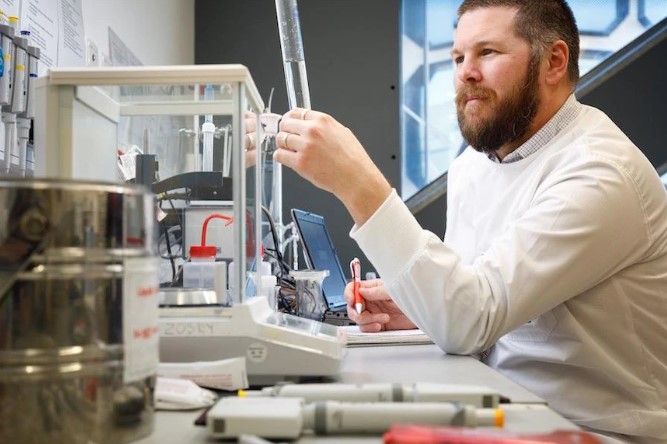
We love introducing our supporters to the local researchers behind all the exciting and important projects.
After presenting at our annual Celebration of Research Excellence event in August, it was fantastic to hear more about Jessica’s research journey and her mission for better health for all Tasmanians.
Jess has been fortunate to have already experienced an interesting and varied career that includes time spent in a regulatory agency and also inspiring the next generation of researchers through academia. After spending several years as a research project manager, including coordinating a major community-based research trial in Sydney, Jess decided it was time to pursue her own PhD, a significant undertaking indeed! She completed this in 2017 and then took the opportunity to take up a fellowship in the oncology office of the Food and Drug Administration (FDA) in the United States, before making her way to Tasmania.
“That was a great experience and gave me the opportunity to work with data from various oncology trials and gain an understanding of the drug development and approval process. My time at FDA helped inspire the research project I am now pursuing thanks to the generous support of the Royal Hobart Hospital Research Foundation,” she said.
Although clinical trials are an essential component of medical research and drug development, most patients with cancer often do not enrol to take part in trials. As a consequence, the challenges of translating findings from trial data into the real world are well-known.
With a multidisciplinary team from the Royal Hobart Hospital, the Menzies Institute for Medical Research and the Peter MacCallum Cancer Foundation, Jessica and her colleagues are investigating the real-world outcomes and side effects of new immunotherapy agents for Tasmanians with lung cancer. This new 2021 Incubator Grant is generously funded by a local Tasmanian benefactor and will provide important local evidence about these drugs which can then be used to build a resource which can better inform future studies in this area, based on real life outcomes.
With many Tasmanians knowing someone who has been impacted by cancer, or being affected directly themselves, this is a vital study, and we know you’ll want to be kept up to date as Jessica and her team progress.
You can help support researchers like Jessica to keep improving the lives of Tasmanians by making an online donation today. Thank you for continuing to improve the lives of the Tasmanian community.
Meet Richard Turner, an experienced Professor of Surgery with a demonstrated history of working in the higher education sector, who for many years now has added his expertise to inform clinical settings in Tasmania and beyond.
Skilled across the diverse areas of epidemiology, emergency medicine and oncology, Richard is heavily involved in lecturing at the University of Tasmania, while also team building across a range of sectors. Through its highly competitive annual grant rounds, the Royal Hobart Hospital Research Foundation has been proud to fund research projects led by Prof Turner in 2010, 2016 and now in 2021.
Professor Turner said he is delighted to work with an excellent group of local Tasmanian collaborators on his most recent research project.
After starting his career in the 1990s as an academic General Surgeon in Cairns, Richard was given advice that would help shape his career.
“Around the time I started my career I attended a lecture by a UK surgeon who had gained worldwide recognition as an expert in benign conditions that cause mastalgia or painful breasts. His advice to young hopefuls seeking renown in their field was to find a disease process that no-one else was interested in, but was still an area of unmet need for the patients suffering from it. Luckily, my clinical practice in Far North Queensland provided ample inspiration, and before long I had found not one but two unloved diseases on which to build a career.”
“What the visiting UK expert did not quite say was that ‘unloved’ diseases do not attract the same degree of research funding as those conditions considered to be ‘high priority.”
He said he feels extremely fortunate to have received Foundation funding for his important research. Funding in 2015 for the Tasmanian Gynecological Anal Neoplasia Study (TasGANS) culminated in a top-tier publication that raised awareness of anal dysplasia in women with a history of HPV-related gynecological lesions. This was ground-breaking work in a critical area.
Professor Turner and his team have recently received funding for a data linkage study that will quantify the epidemiological and economic burden of pancreatitis in Tasmania. Statewide hospital and pathology data will be linked to provide a dataset which profiles Tasmanian pancreatitis cases from 2007-2018 to underpin further research.
“We anticipate that this project will provide impetus for similar work on a national scale that will ultimately identify underserviced population groups and lead to tailored strategies for quality improvement - this will be vital for Tasmanians now and into the future,” he said.
You can support researchers like Richard by making a donation online, or calling one of our friendly team members on (03) 6166 1319.
So, let’s start with why that much-needed sleep may become so hard to find. Well, it might all be ‘in the bones'!
Osteoarthritis (OA) is a common, painful and disabling condition. That’s confronting news as almost 50% of Australians develop OA - in fact, the prevalence of OA in Tasmania is even higher. And as those who experience chronic conditions like OA know only too well, sleep disturbance as a result of pain can make an increasingly negative impact on quality of life.
Local researcher Dr Feng Pan is a Senior Research Fellow at the University of Tasmania where much of his work is focused on identifying key risk factors for chronic pain and osteoarthritis (OA), identifying the observable characteristics of pain and OA and also testing new therapeutic treatments. Generously funded by a local donor, this vital research will make a difference to so many Tasmanians.
Relevance to Tasmanians
Despite such a high prevalence of OA in our community, there are currently no effective disease modifying drugs. Not only that, but existing therapeutic drugs have also limited success and carry a substantial risk of undesirable side effects. While joint replacement can be highly effective for pain relief, a substantial proportion of patients are unsatisfied or continue to experience persistent pain even after total hip or knee replacement.
Many Tasmanians experience a lengthy wait time for joint replacement surgery, and this also results in a decline in patients’ quality of life and physical function, not to mention an increase in joint-related pain. The information uncovered from this local study will undoubtably have a positive impact on the health and wellbeing of many Tasmanians.
What do we know?
OA pain in particular is a complex phenomenon, with pain presentations varying among patients. Unsurprisingly there have been disappointing results from current “one-size fits all” treatment approaches in OA pain patients. This new study is built on recent local findings which confirm that patients benefit from more personalised therapeutic approaches. Although we know sleep problems are very common amongst those with OA pain, the true nature of sleep/OA pain relationships, as well as underlying inflammatory responses, are not yet clearly understood.
What’s next?
The aim of this study is to uncover the directionality of the sleep-pain trajectory and its underlying inflammation mechanism. As you would anticipate, this investigation has important clinical implications for developing more personalised management strategies for OA pain patients with sleep problems. This local study has great potential to significantly improve OA patients’ quality of life while also delivering substantial relief in saved healthcare costs for families and Tasmanian communities as a result. We all know how much better a decent night’s sleep can make us feel!!
The Foundation’s purpose is to pursue better health for Tasmanians through research, but we can’t do this without your help.
This June please consider providing a gift that will support not only Dr Pan and his team members - Professor Graeme Jones and Dr Hilton Francis, but so many other passionate researchers on their quest for better community health outcomes – it means so much to all of us.
You can help members of our Tasmanian community by choosing to make an online gift to the Foundation today. Every donation over $2 is tax deductible.
You may have spotted local researcher Dr Dino Premilovac in some of our communications over the last few years, often sporting a white coat talking all things “brain research”, but at times more casually attired, introducing us to his young family with whom he loves to spend time bushwalking and camping around Tasmania.
However, spare time is rare in the life of a researcher and there has been plenty of vital work going on behind the scenes in local labs that will have significant impact for years to come. In fact, two of Dino’s recent Foundation funded research grants have now concluded and the outcomes will see positive change for the Tasmanian community and those further afield.
As a researcher Dr Premilovac tells us that being able to complete a project that will have vital impact is hard to describe.
“It’s hard to convey the exact feeling you get when completing a funded project, but it involves a mix of satisfaction, pride, excitement and relief! It’s fantastic to see the ideas that we work on for a long time produce really promising data, such as in the much-needed area of brain research.”
Dino’s message is simple. He emphasises why community support and funding are so important. Without support from the Foundation and sponsors like Blundstone, who generously funded one of Dino’s recent studies, these exciting research opportunities simply could not have gone ahead.
“I don’t know if it's common knowledge, but medical research is very expensive and science in general in Australia is severely underfunded. Having a local funding body like the Foundation, one that provides opportunities for research grants with impact in Tasmania, is really important.
“This means that medical research can take place in Tasmania and produce benefits not only for Tasmanians, but for the rest of Australia as well. Being able run research projects means we can train honours and PhD students in our teams. This means that local research funding enables us to recruit and train a new generation of medical researchers right here in Tasmania,” he said.
Dino explains that he feels driven every day to find out more as a researcher and confesses that he feels lucky that he gets to learn more about how our bodies work while also having the opportunity to research ways to treat the many diseases and conditions that are all too common in our community.
“I really enjoy learning more about how our bodies work. In particular, I am driven to understand how the smallest blood vessels in our bodies, the capillaries, work to supply each of the cells in our body with glucose and oxygen. This is an exciting area to be involved with because problems with capillary blood flow underpin almost all diseases that affect us, including stroke, heart disease, cancer and even obesity and type 2 diabetes. If we can better understand how capillaries work, we might be able to develop new drugs to treat these diseases,” he said.
Dino said despite the wealth of information gained in the last 10-20 years scientists are still at the tip of the iceberg when it comes to understanding how the brain works and how to fix brain disorders. The two Incubator Grants (2019 and 2020) that Dr Premilovac and his team have finalised are related to stroke and getting drugs to the brain when diseases are present.
“Stroke is one of the biggest killers of people in Tasmania and around the world. The only treatment we have for people that have a stroke is to remove the blood clot to restore blood flow to the brain. There is currently very little we can do to improve recovery from stroke. In our first study, we were able to show that a drug called Idebenone protects the brain from further damage after a stroke. This is really promising data, but we still need to do more investigation with this drug to understand exactly how it works to do this and what the potential side-effects of Idebenone might be.
“A major issue with the drugs we give to people to treat brain diseases like stroke is the off target effects the drugs have on other parts of the body. Thanks to funding from the Foundation, we have developed a new way of concentrating drug delivery to the brain using ultrasound. This technology is completely safe to use in people and allows us to increase drug delivery to the brain while reducing the off-target effects on other organs. Our next challenge is to see if we can apply this new technology to improve drug delivery in the context of brain disorders such as brain cancer and stroke so that ultimately, we can improve health outcomes,” he said.
While the Foundation commends Dino and his team for such outstanding work, we know that this wouldn’t be possible without the support of our donors and corporate partners. Thank you!
You can support ground breaking research like Dino's by making an online donation today, or calling one of our friendly team members on (03) 6166 1319.
Cardio-Vascular Disease (CVD) causes more Tasmanian deaths than any other condition. It is linked to over 3,000 Tasmanian deaths each year and is a major burden to Tasmanians and our community. This impacts on quality of life, but also through high use of health services, particularly at the Royal Hobart Hospital (RHH), where the statewide services of cardiac surgery, vascular surgery and stroke services are based.
Led by Professor Matthew Jose, a state-wide research team made up of clinicians from general practice, together with those involved in public health, kidney disease, diabetes, cholesterol and heart disease was funded to undertake vital Tasmanian focused research in late 2019 and early 2020. We are pleased to report that this study has uncovered some very important information that will help ongoing medical research for years to come. You may remember the roll-out of media coverage around our community health campaign focusing on vascular disease that saw the community dig deep to ensure this $25k study could be funded. We featured the story of local Tasmanian, Scott Salter, who suffered two heart attacks before undergoing triple bypass surgery at the RHH at Christmas time 2018. Scott is 58 and knows first-hand how close he was to having this disease devastate his life. His message was clear, “don’t leave it too late to get checked”.
Greater awareness and support is critical for people with high cholesterol. We need to identify and fully treat these people to try and prevent future heart attacks, strokes or death from Cardio-vascular Disease.
The study titled “A comprehensive examination of potentially modifiable vascular disease risk factors and their consequences in Tasmania” saw a local research team from across the state dive into data to analyse which Tasmanian communities have high levels or risk factors for vascular disease (kidney disease, cholesterol, or diabetes). Royal Hobart Hospital Research Foundation CEO, Heather Francis, said this clinical research project and many others will have lasting impact for generations of Tasmanians to come.
“There is so much to be done to improve the health status of Tasmanians. Funding these important research programs is only possible through the assistance of our community. Generous support will help us work toward this goal, but it is important to know that the impact of this study has already been particularly vital,” she said. With the help of Sonic Laboratories (Hobart Pathology, Launceston Pathology and North-West Pathology) plus Pathology South, the team examined 398,649 unidentified Tasmanians who had their lipids, glucose or creatinine measured between 2004 – 2017. The team then reported these by age, gender, geographic region (South, North or North-west Tasmania as well as smaller local communities). We think you’ll join us in being excited about another example of cutting-edge research happening right here at our doorstep with involvement of many locals, all aimed to benefit Tasmanians in years to come.
You can help support projects like this one and many more by making an online donation today. Thank you for continuing to support groundbreaking Tasmanian medical research.